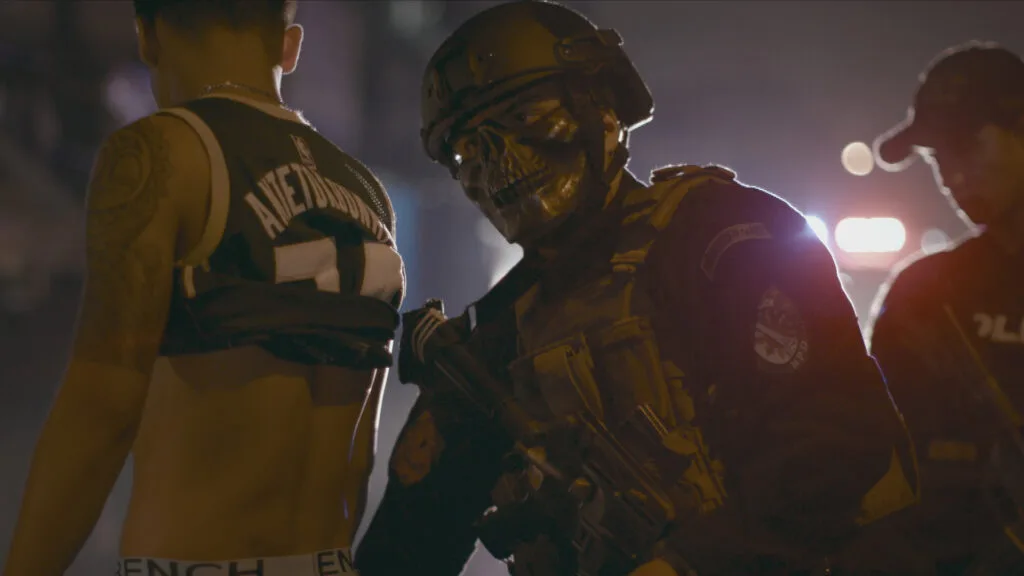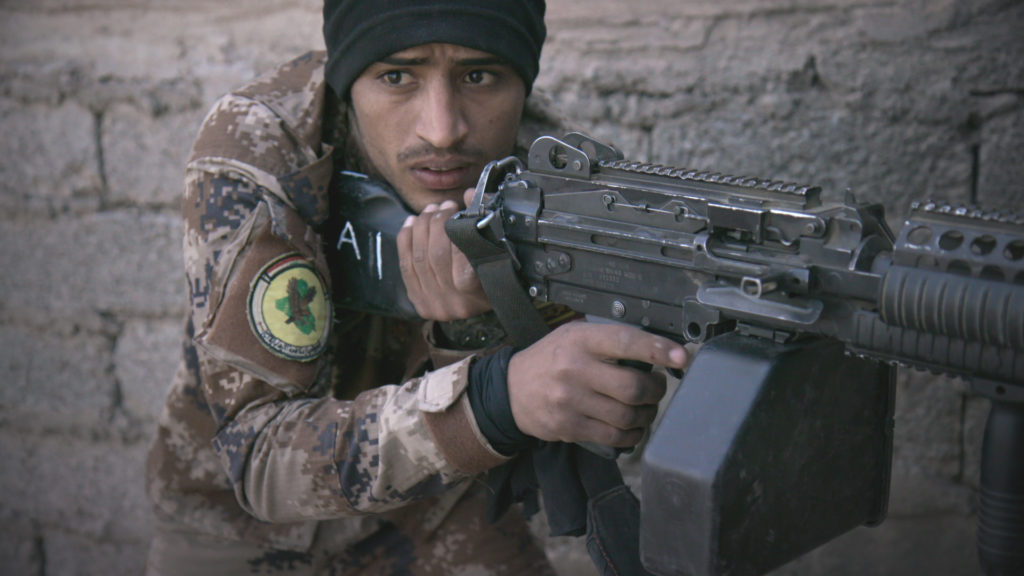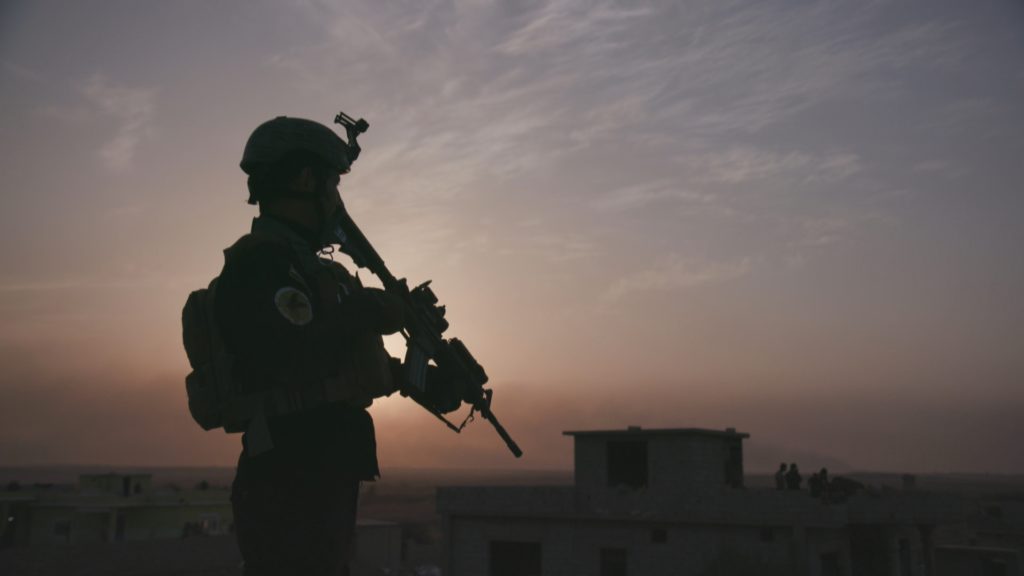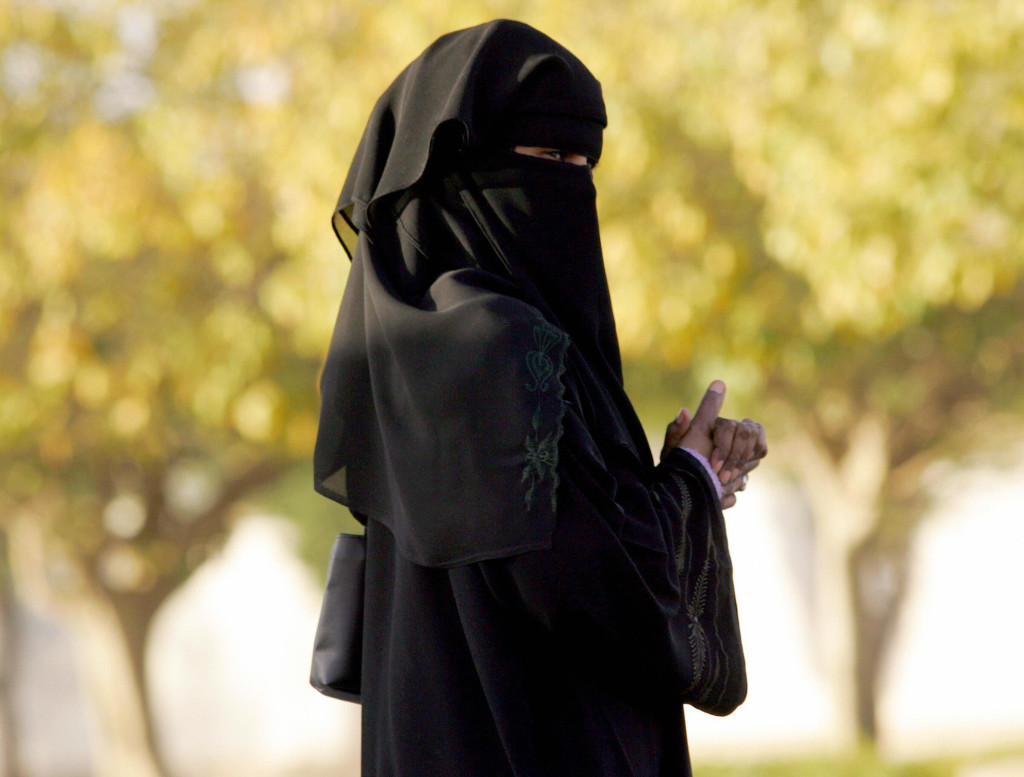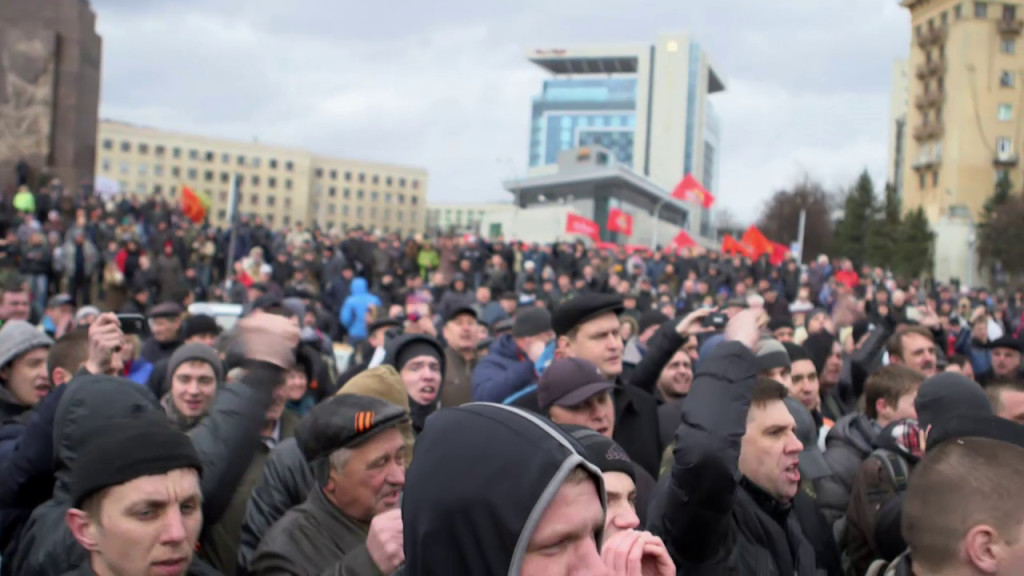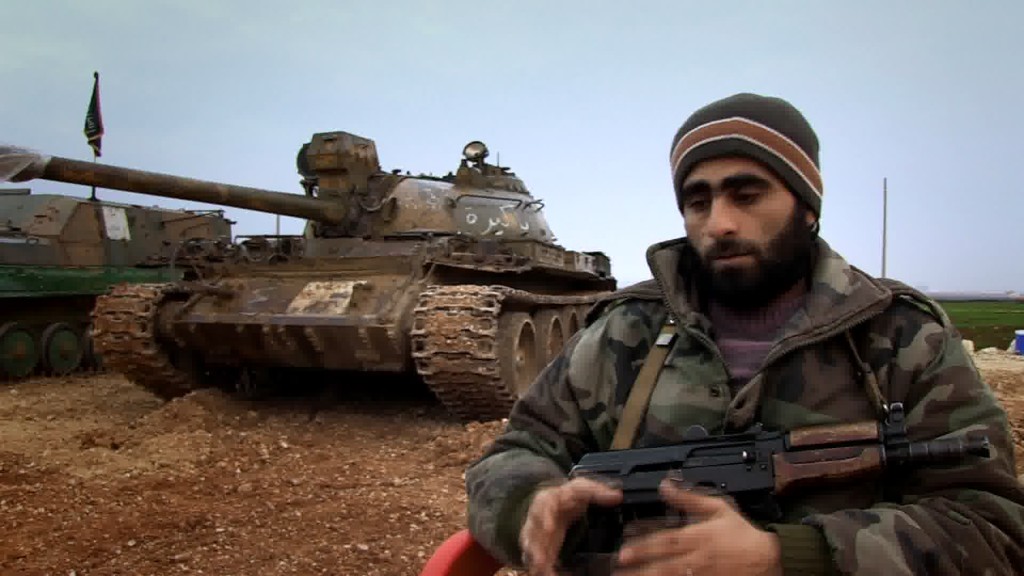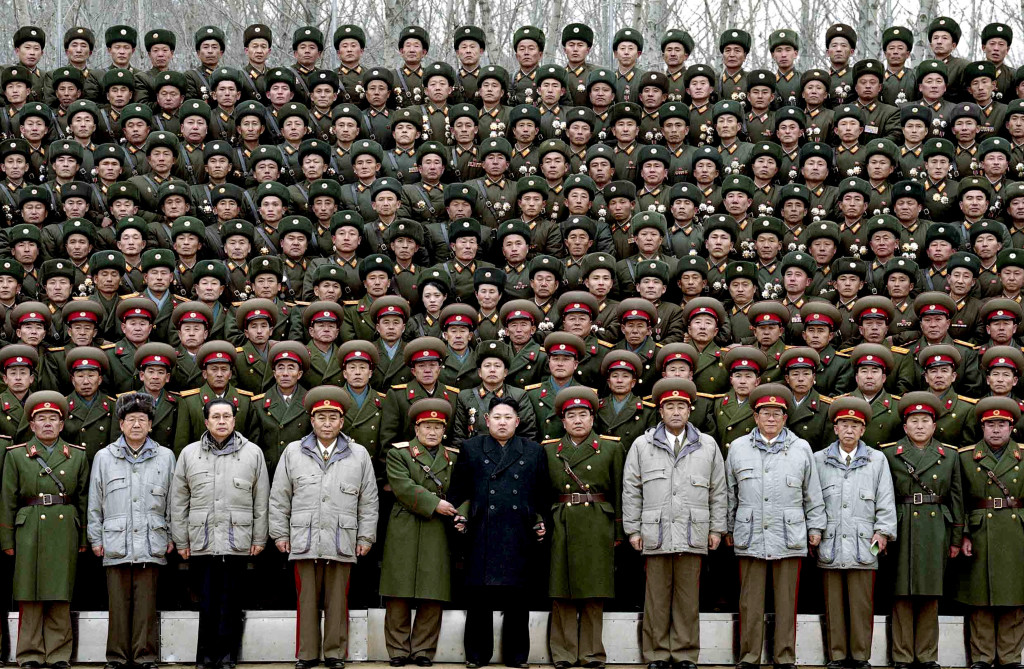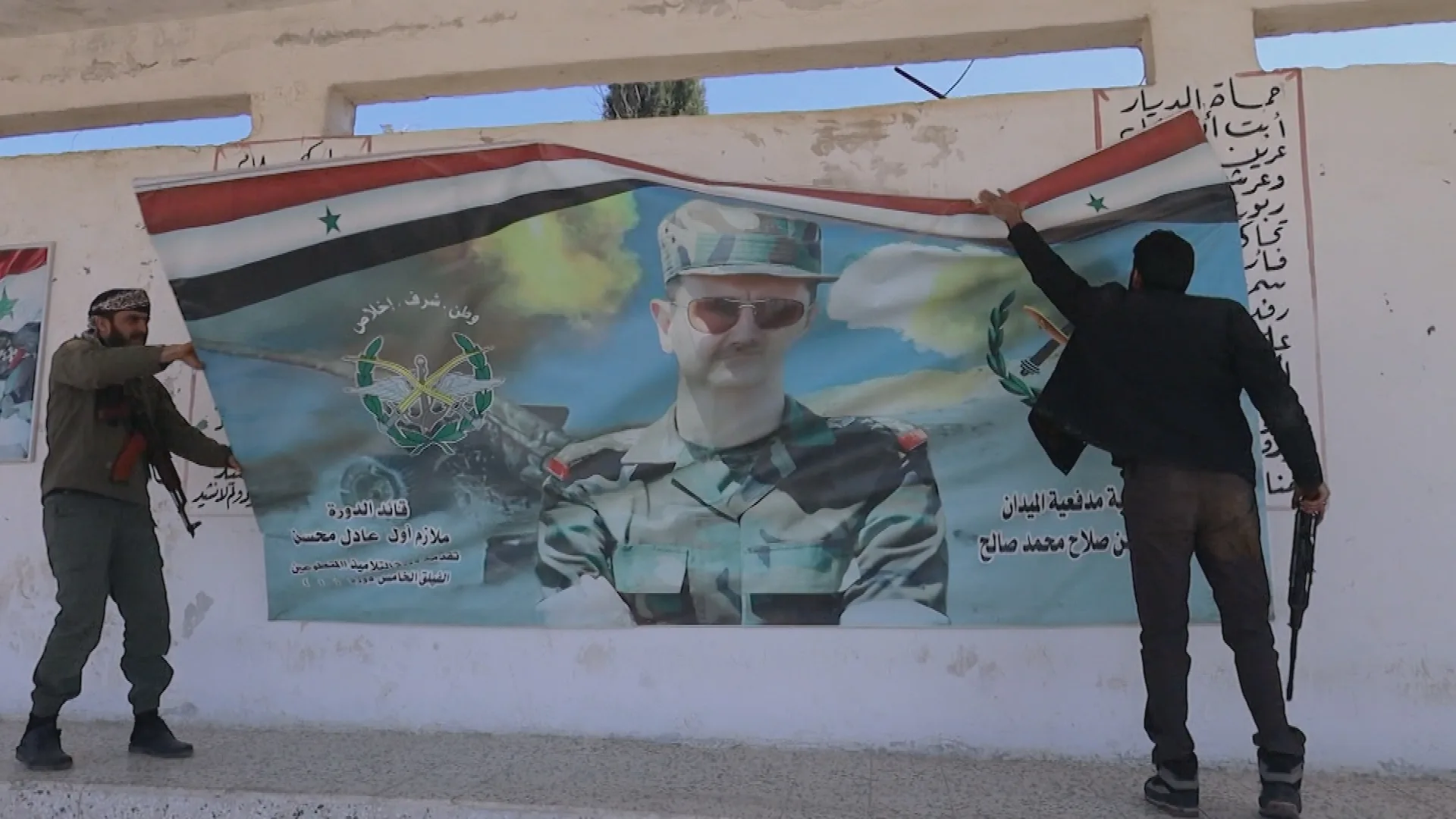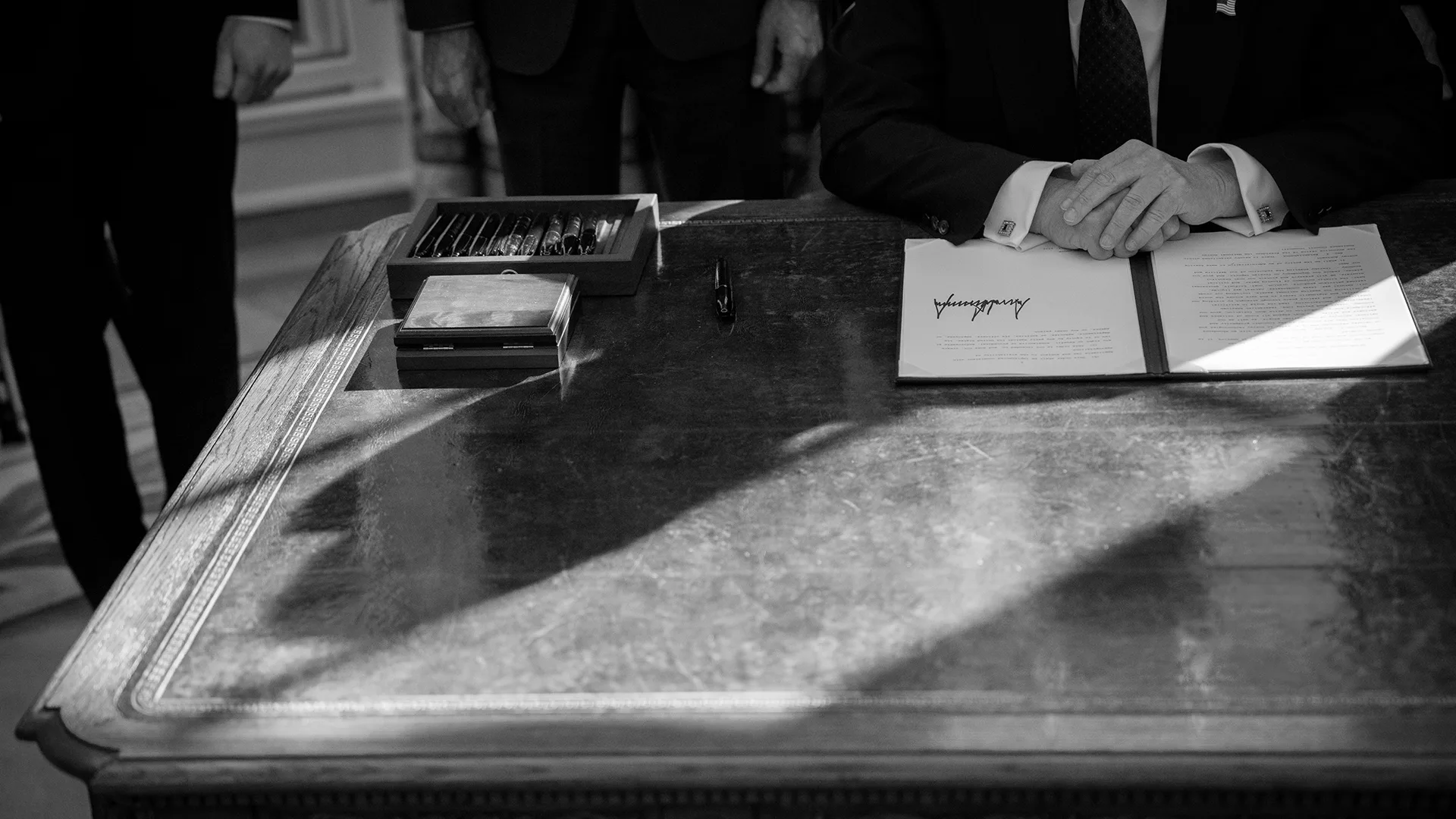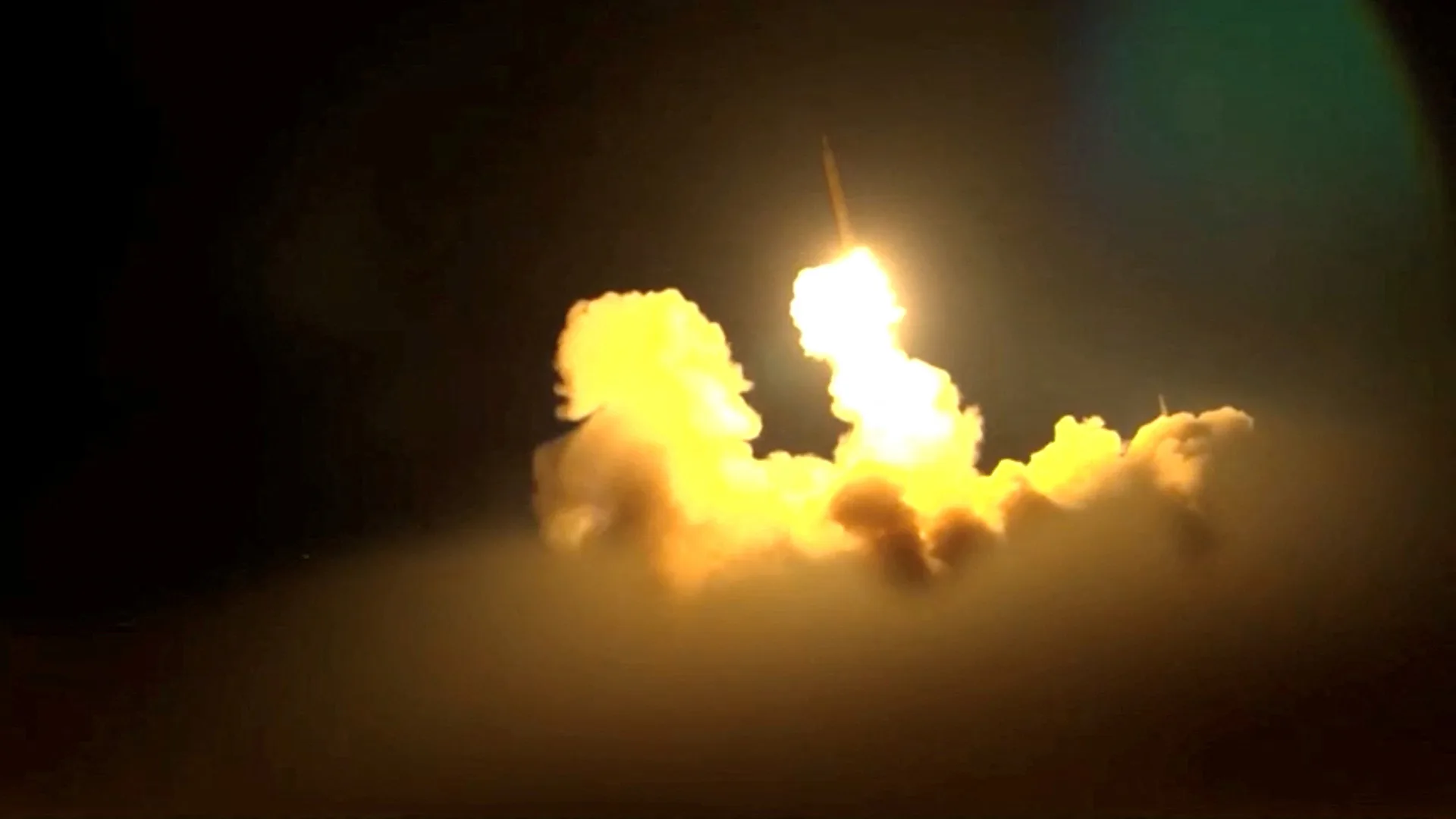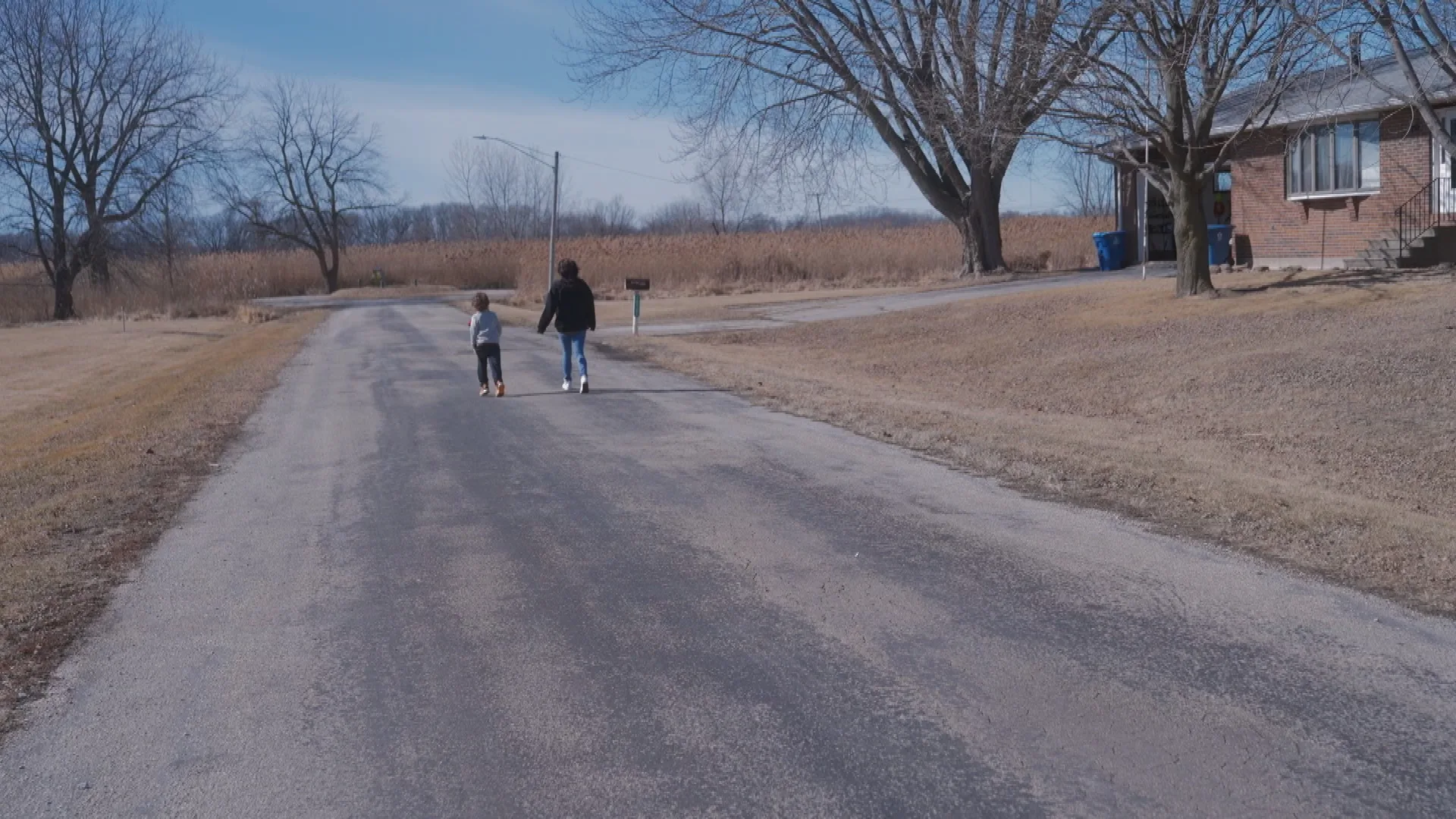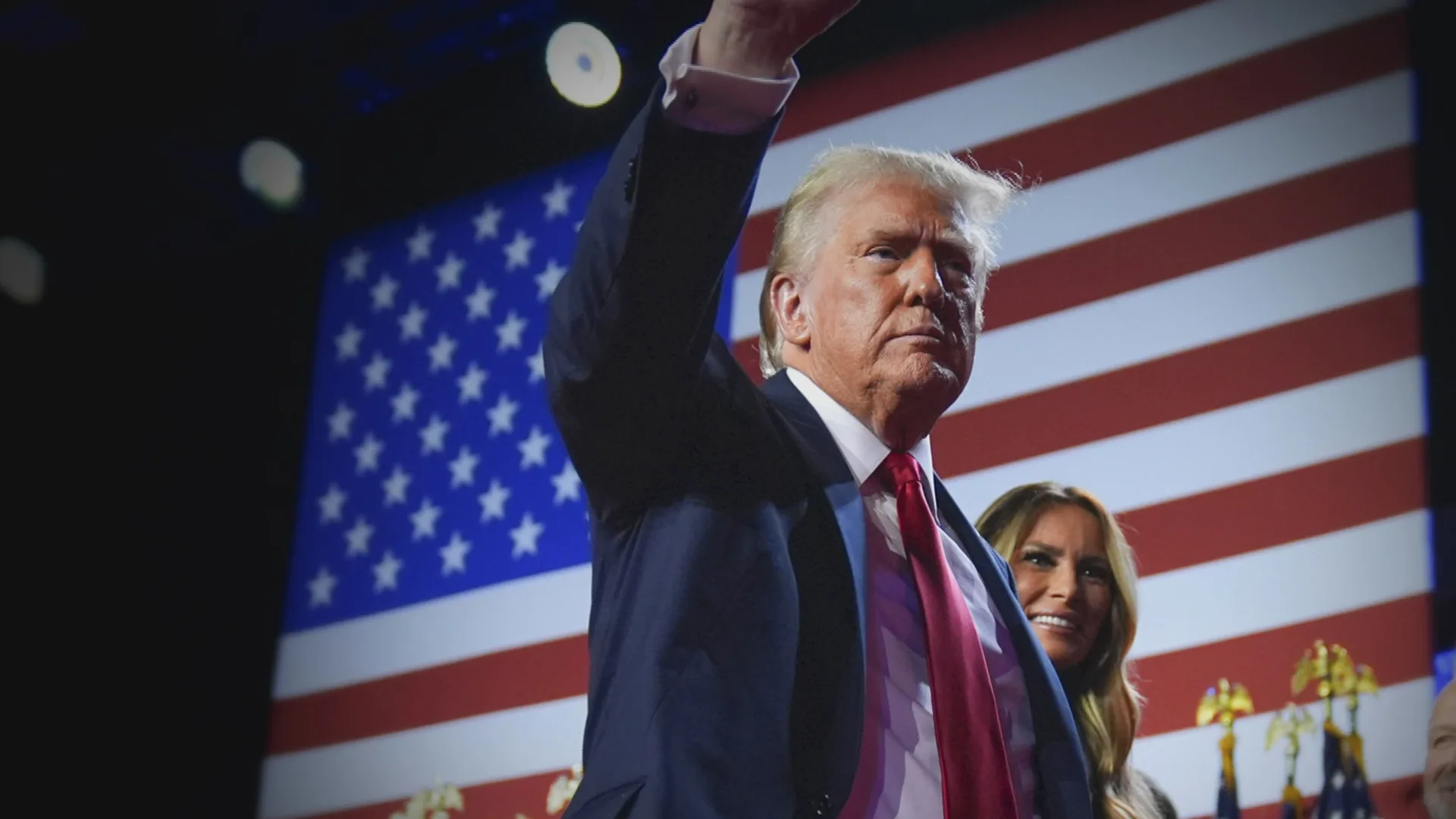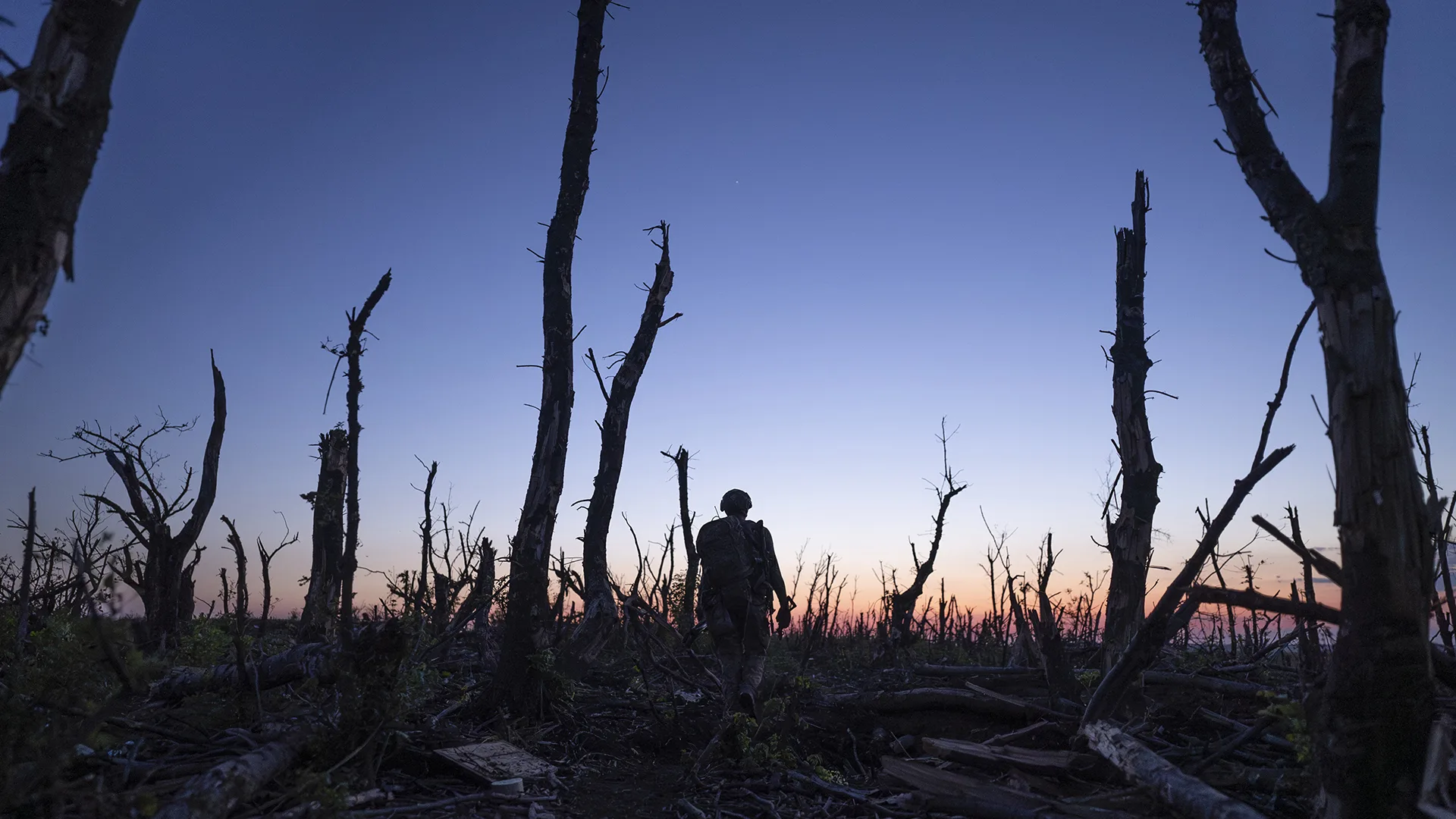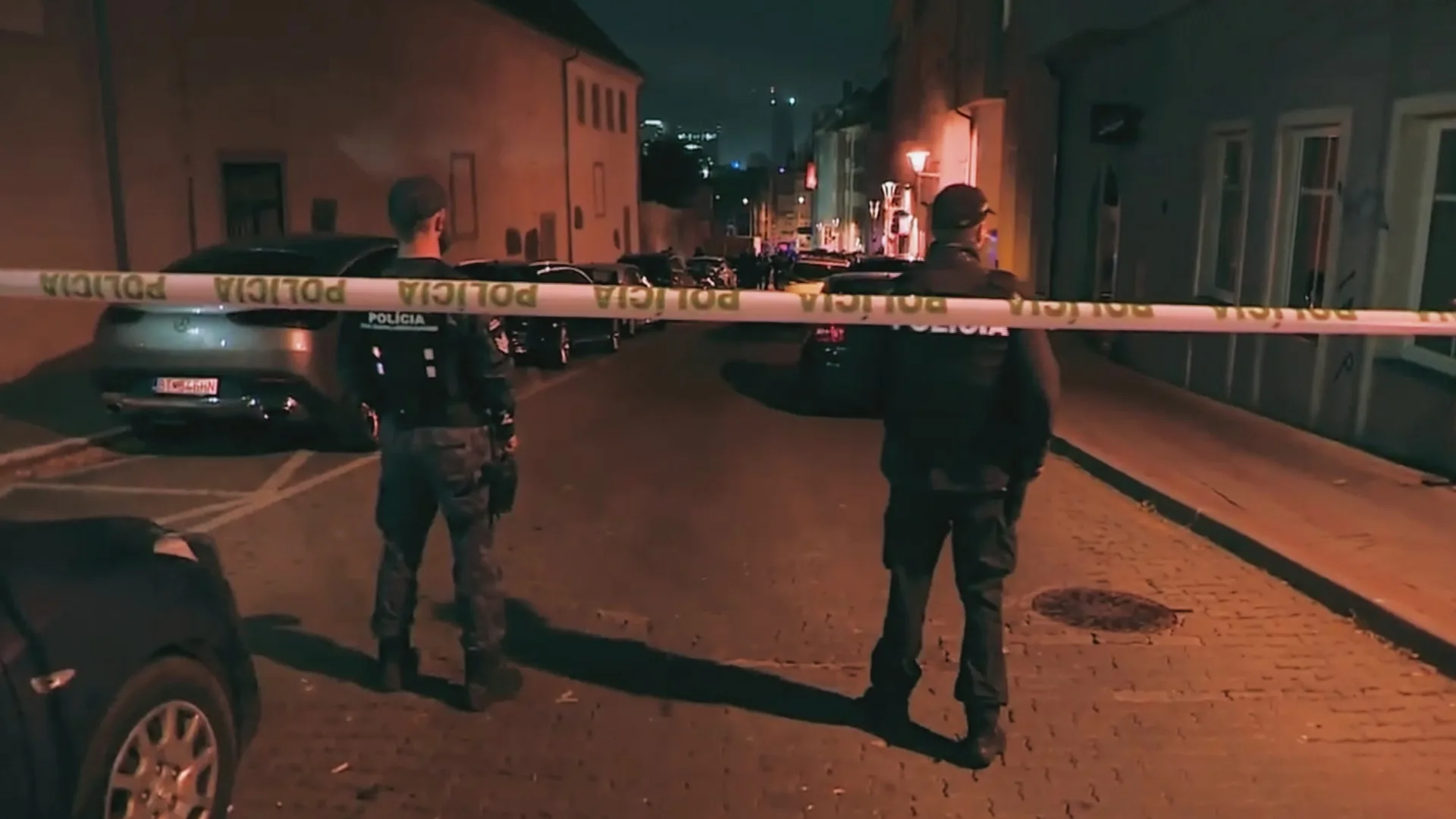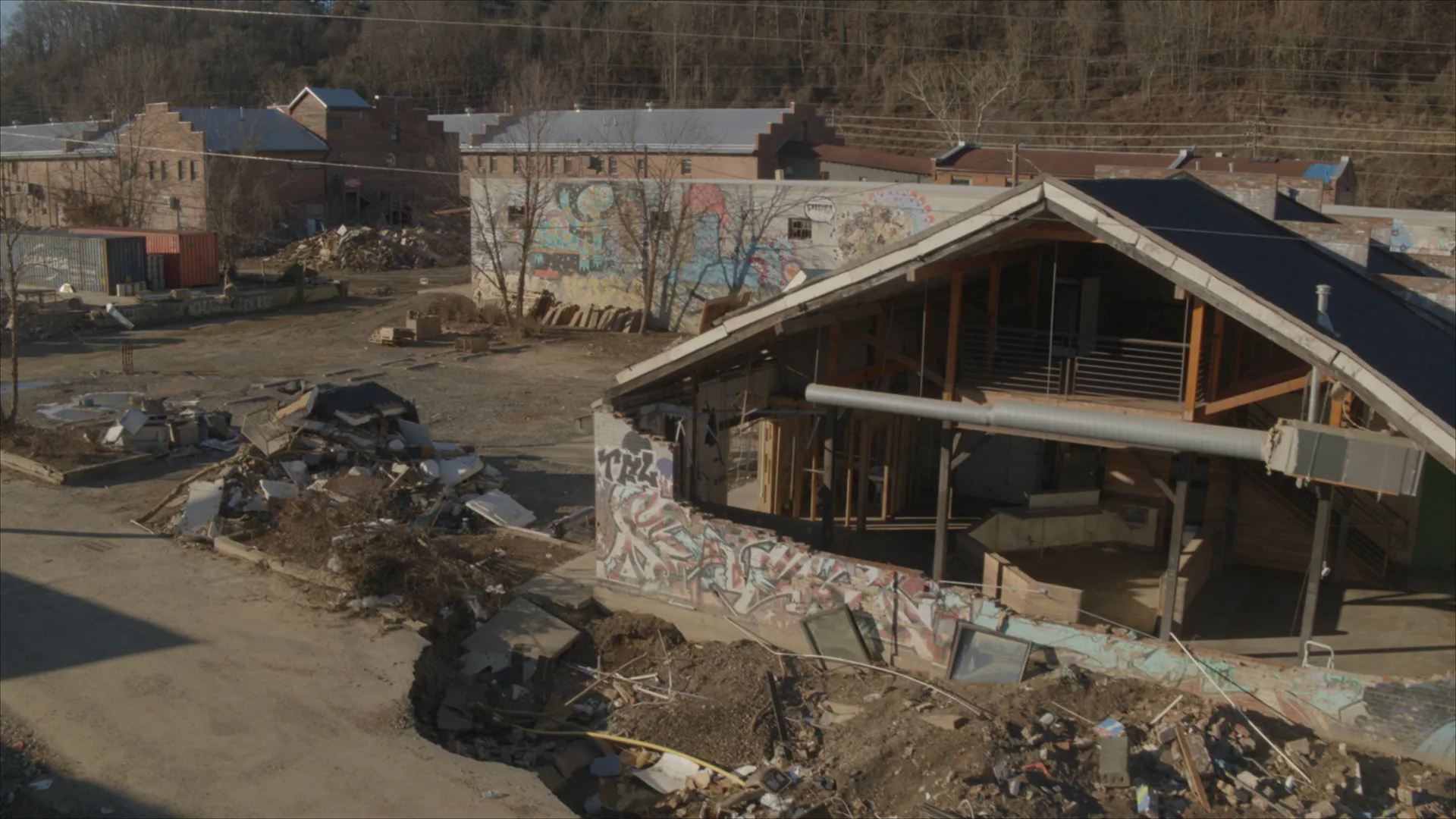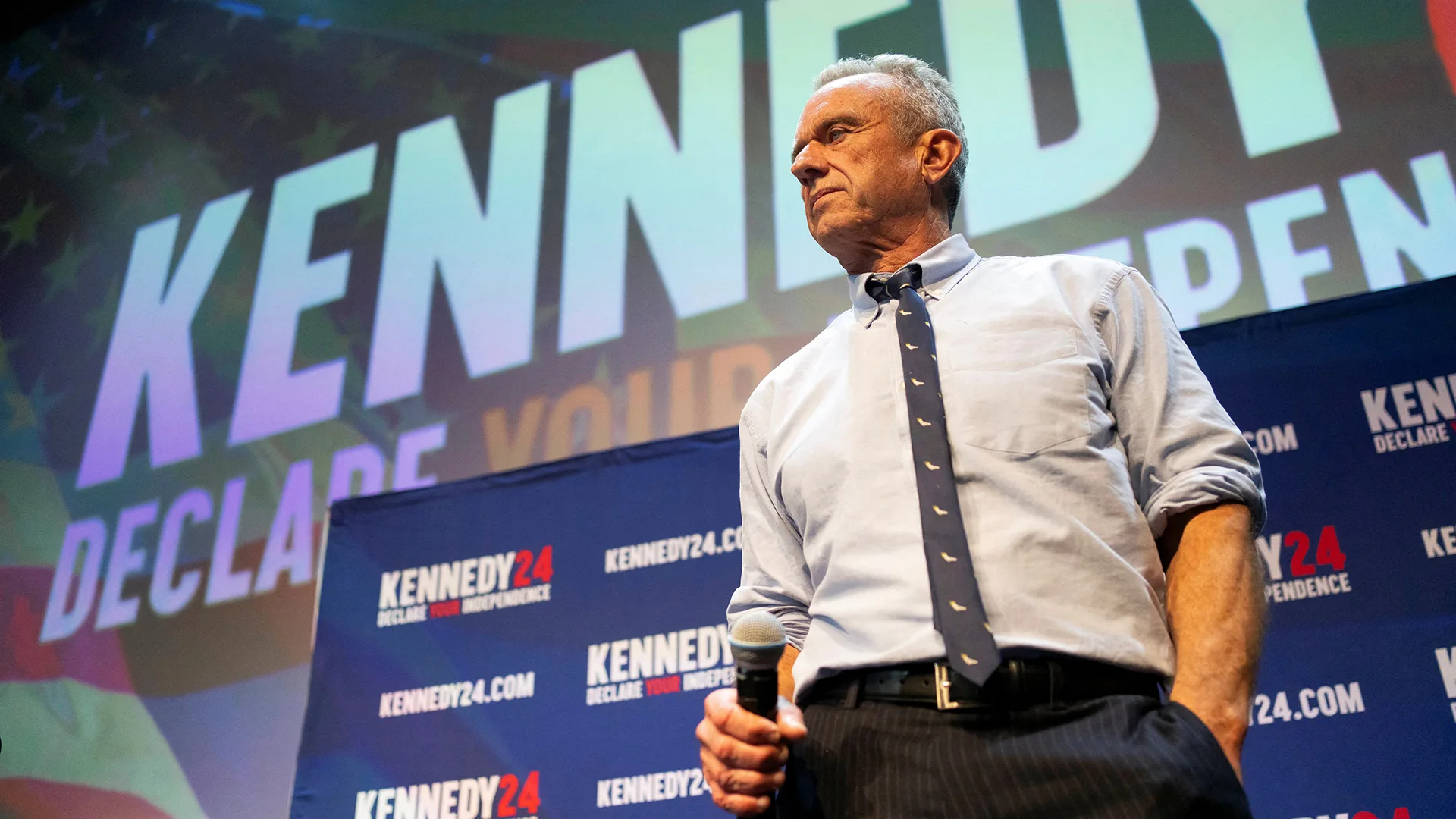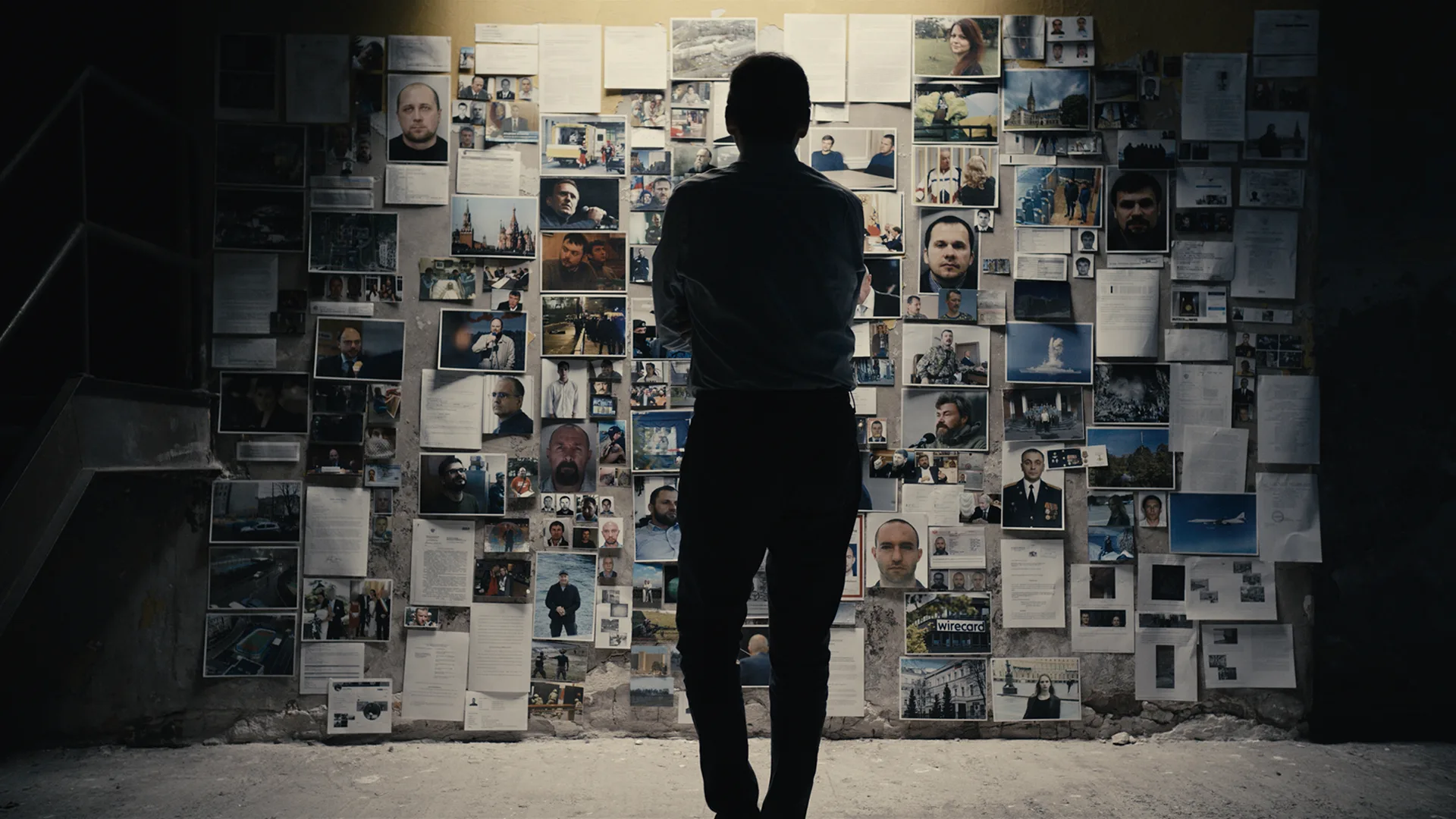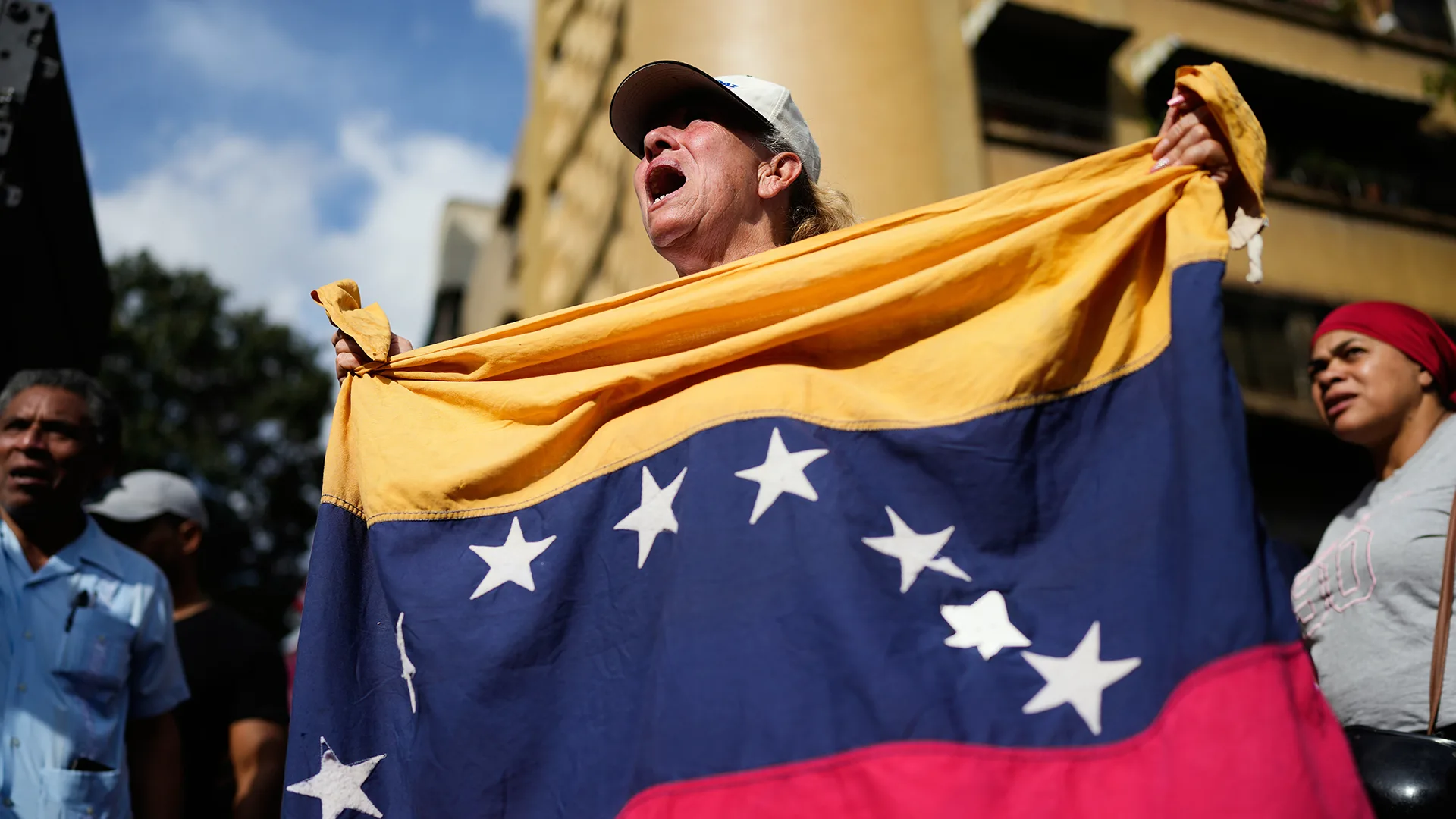Antidote
May 6, 2025
1h 24m
An award-winning film that exposes the cost of opposing Vladimir Putin
Antidote
May 6, 2025
1h 24m
Share
An award-winning film that exposes the cost of opposing Vladimir Putin. FRONTLINE presents the stories of investigative journalist Christo Grozev and political activist Vladimir Kara-Murza, who put their lives on the line standing up to the Kremlin and the consequences they faced.
Support provided by:
Learn More
More Documentaries by James Jones
Most Watched
The FRONTLINE Newsletter
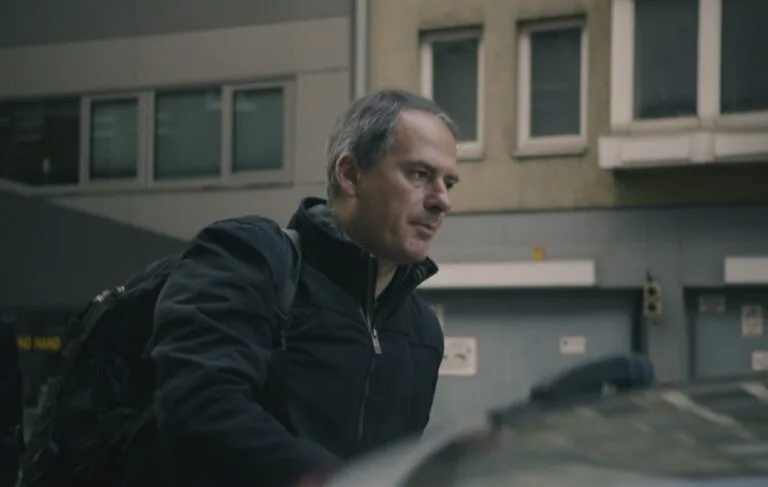
How a Journalist Ended Up on the Kremlin’s Wanted List
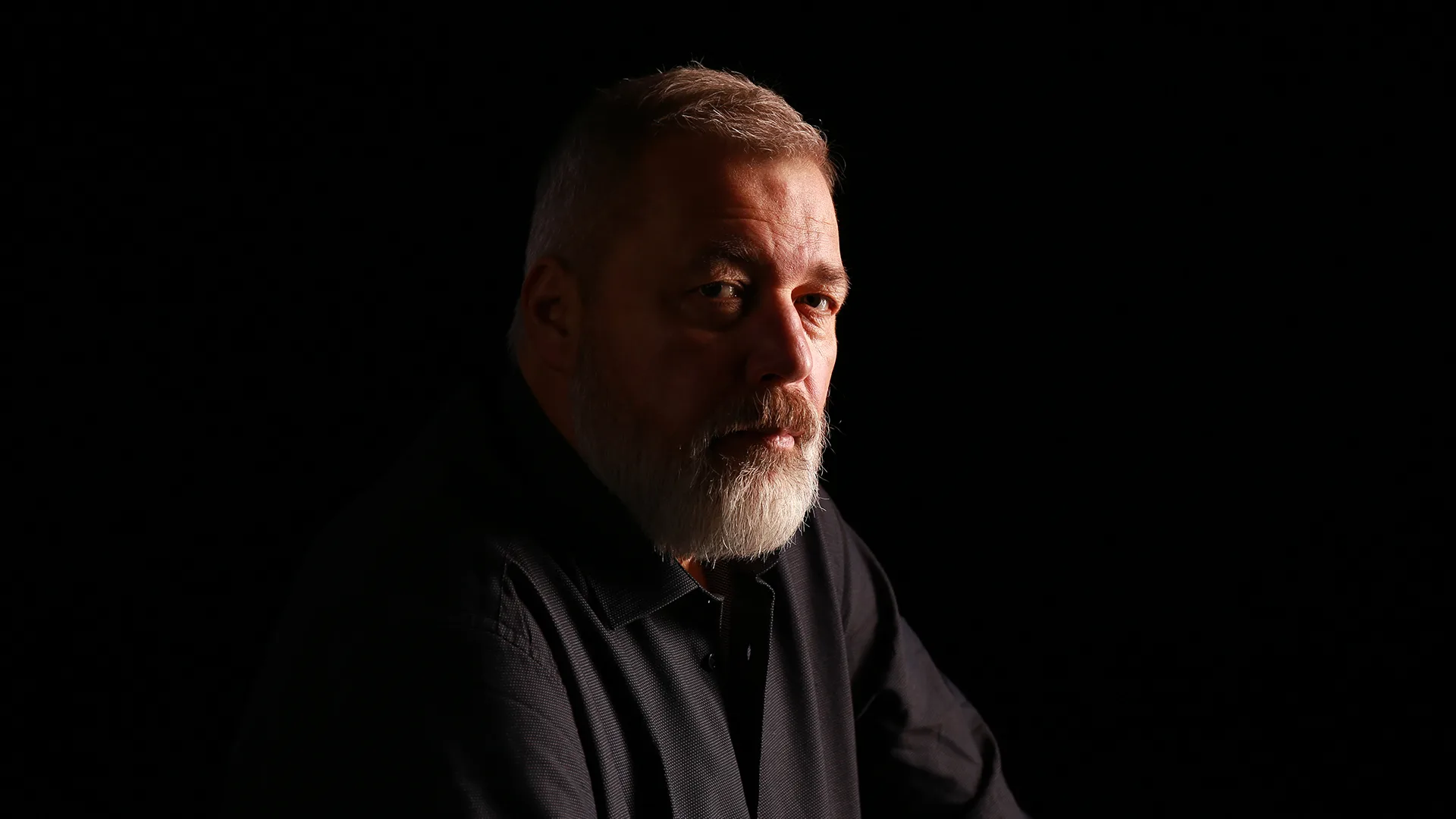
Putin vs. the Press
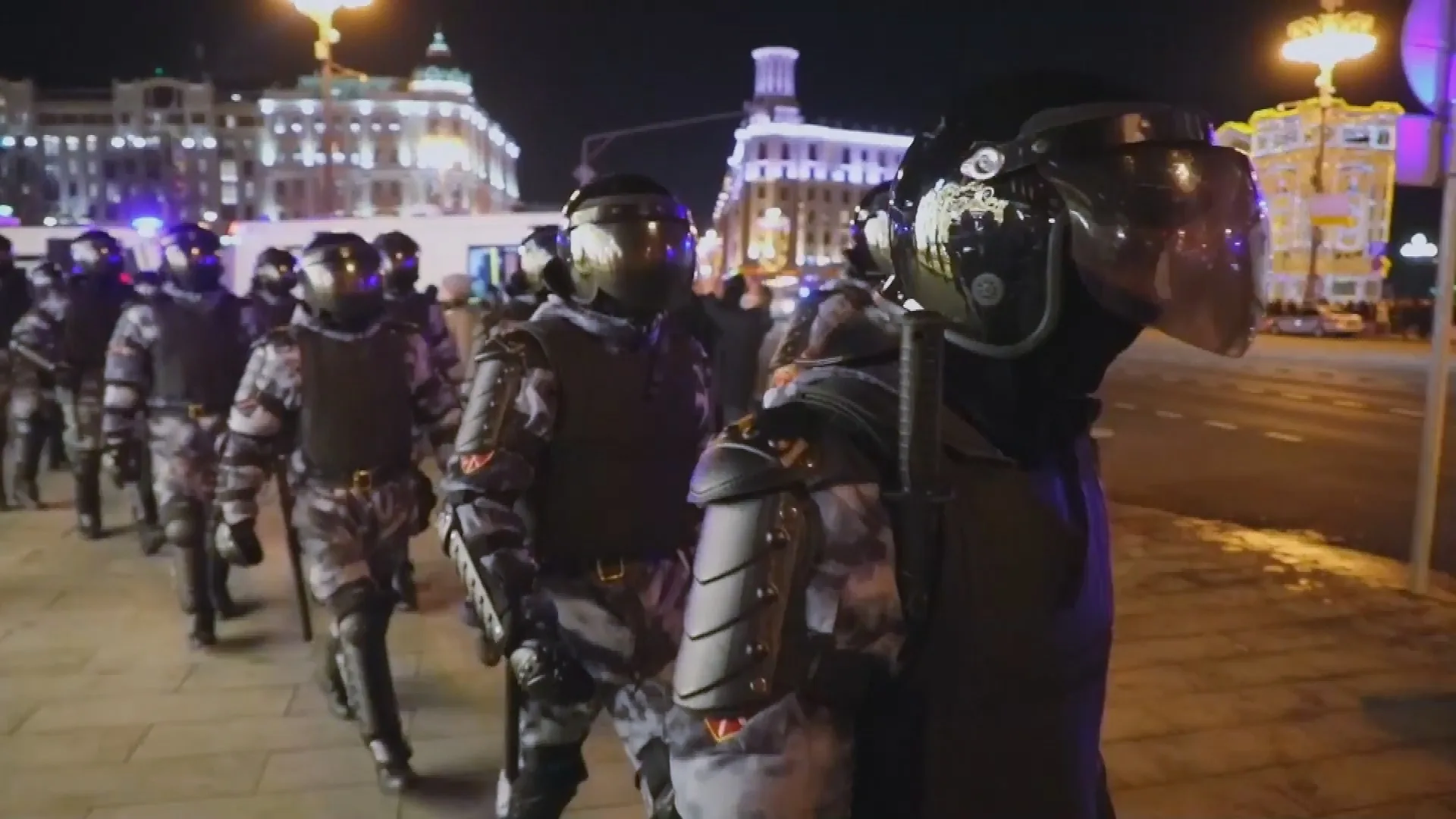
Putin’s War at Home
Related Stories

How a Journalist Ended Up on the Kremlin’s Wanted List
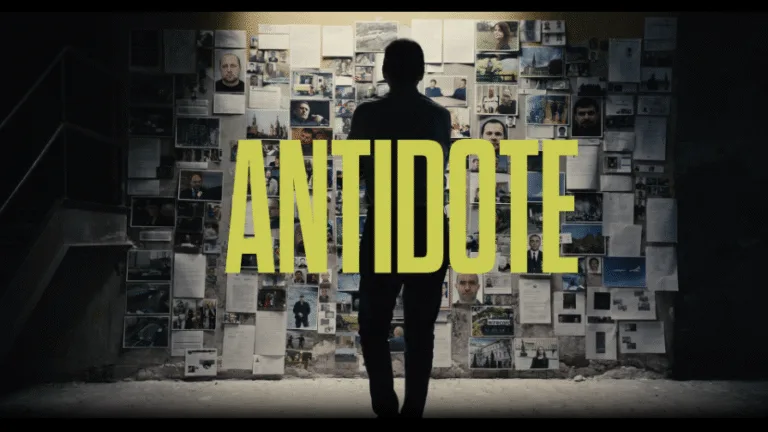
On ‘Antidote,’ and the Power and Perils of Investigative Journalism

A Window Into the Moscow Life of Wirecard’s Jan Marsalek
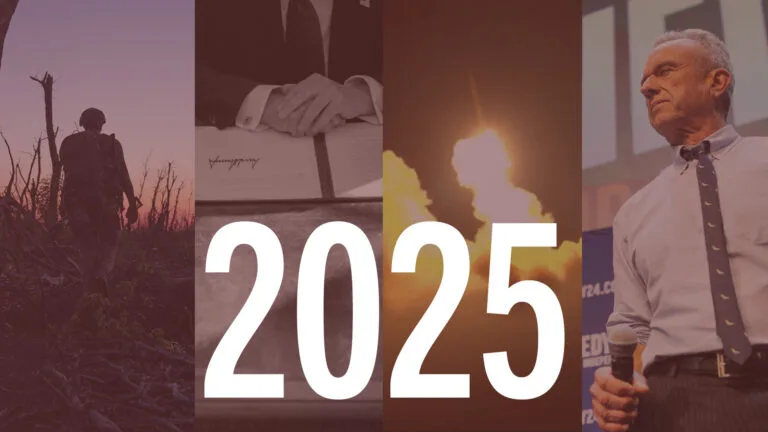
Watch 2025’s 10 Most-Streamed New FRONTLINE Documentaries

Putin vs. the Press

Putin’s War at Home
Related Stories

How a Journalist Ended Up on the Kremlin’s Wanted List

On ‘Antidote,’ and the Power and Perils of Investigative Journalism

A Window Into the Moscow Life of Wirecard’s Jan Marsalek

Watch 2025’s 10 Most-Streamed New FRONTLINE Documentaries

Putin vs. the Press

Putin’s War at Home
January 13th, 2023
MALE VOICE [on phone]:
[Speaking Bulgarian] Hello?
CHRISTO GROZEV, Russia investigator, Bellingcat:
[Speaking Bulgarian] Father?
CHRISTO’S FATHER [on phone]:
[Speaking Bulgarian] Have you come back? Yes? What is it?
CHRISTO GROZEV:
[Speaking Bulgarian] No. That’s why I’m calling. I haven’t come back.
CHRISTO’S FATHER [on phone]:
[Speaking Bulgarian] What?
CHRISTO GROZEV:
[Speaking Bulgarian] I have not come back, no.
CHRISTO’S FATHER [on phone]:
[Speaking Bulgarian] You’re still there?
CHRISTO GROZEV:
[Speaking Bulgarian] I cannot come back.
CHRISTO’S FATHER [on phone]:
[Speaking Bulgarian] What do you mean?
CHRISTO GROZEV:
[Speaking Bulgarian] I was told that if I went back to Austria they would immediately kill me.
CHRISTO’S FATHER [on phone]:
[Speaking Bulgarian] That’s terrible. What are we going to do?
CHRISTO GROZEV:
[Speaking Bulgarian] We will go after them.
Antidote
n. an agent to counteract the effects of a poison.
Moscow
MALE NEWSREADER:
As the lead Russia investigator for the groundbreaking news outlet Bellingcat, Christo Grozev has been the driving force behind a series of stunning revelations. Pioneers in the use of publicly available data and social media for investigative journalism.
FEMALE NEWSREADER:
Out front now, Christo Grozev. He was able to identify the Russians involved in poisoning Putin opposition leader Alexei Navalny.
CHRISTO GROZEV:
We’re disabling more and more agents. Burning whole sequences of names.
MALE NEWSREADER:
Grozev calls it the art of reconstructing a crime based on digital breadcrumbs, a new form of journalism that takes human sources and their personal agendas out of the equation.
MALE NEWSREADER:
Breaking news. In the past few minutes three Bulgarians have been convicted at the Old Bailey of spying for Russia.
MALE NEWSREADER:
The group targeted opponents of Russian President Vladimir Putin. On a flight from London to Vienna they filmed journalist Christo Grozev and planned to kidnap him.
FIDELIUS SCHMID, Investigative reporter, Der Spiegel:
The minute the Kremlin perceives you as part of the intelligence game, you’re a target.
EVGENIA KARA-MURZA, Wife of Vladimir Kara-Murza:
—you believe in the 21st century, the Russian authorities are using an assassin squad to eliminate, physically eliminate the opponents of Putin’s regime.
MALE SPEAKER:
Bellingcat is the tool for the deep establishment.
ROMAN DOBROKHOTOV, Investigative reporter: The Insider:
It’s like in a war. When you are a soldier, you understand that the risk is a part of the rules of the game. The world has changed.
JAMES JONES, Producer/director:
Did you ever think you’d be investigating an assassination plot against yourself?
CHRISTO GROZEV, Russia investigator, Bellingcat:
No. No. Clearly this is from the realm of a really, really crazy novel. It doesn’t happen really. Until it does.
Nine Months Earlier
Somewhere Near the Ukrainian-EU Border
CHRISTO GROZEV [on phone]:
[Speaking Russian] What’s the plan?
MALE DRIVER:
[Speaking Russian] Listen, the guys I asked to meet him are still on their way. They will arrive in about two hours. What if a patrol shows up?
CHRISTO GROZEV [on phone]:
[Speaking Russian] Can you send me the location? I’ll check it out.
MALE DRIVER:
[Speaking Russian] Yes.
CHRISTO GROZEV:
In my work as a journalist investigating Russia, I’ve constantly been challenged to find new ways to get the truth out—in this case, helping an extremely valuable whistleblower, a scientist from Putin’s poison program, escape.
MALE NEWSREADER:
Russian opposition leader Alexei Navalny is unconscious on a ventilator in a hospital after an alleged poisoning.
FEMALE NEWSREADER:
Sergei Skripal and his daughter were poisoned by a military-grade nerve agent of a type developed by Russia.
FEMALE NEWSREADER:
—fighting for their lives in a U.K. hospital, suspected of being poisoned while they were sitting on a park bench.
MALE NEWSREADER:
The case fits a disturbing pattern of targeted killings and assassination attempts against figures who challenge Russian President Vladimir Putin.
PRESIDENT VLADIMIR PUTIN:
[Speaking Russian] We do not have such resources. We destroyed all our chemical weapons under international observers. I think any sane person understands that it is complete nonsense.
CHRISTO GROZEV:
This whistleblower is determined to tell the world how the state makes deadly poisons and targets political opponents. So I’m setting up his escape across the border with a trusted contact.
MALE DRIVER:
[Speaking Russian] So, this is the border where he will start. From here he will go through this wood. Here there is an opening for him. It will hopefully provide him with a safe passage.
CHRISTO GROZEV:
If he gets caught crossing the border he will be sent back to Russia and probably convicted of treason, or even worse. We’ve agreed a meeting point in the middle of the countryside, but even here there are border guards everywhere. It’s incredibly dangerous for him.
MALE WHISTLEBLOWER [on phone]:
[Speaking Russian] Hello, the border guard is about to leave, do you understand that? This is urgent, where is your car?
MALE DRIVER:
[Speaking Russian] We are here already.
MALE WHISTLEBLOWER [on phone]:
[Speaking Russian] Where’s here?
MALE DRIVER:
[Speaking Russian] At the spot. But we saw a car with people in uniform. It seemed like they were in uniform. So we have to be careful. He’ll walk through these woods we’ve just passed.
MALE PASSENGER:
[Speaking Russian] He’s asking us to hurry up, he’s running.
MALE DRIVER:
[Speaking Russian] Five hundred meters left. This isn’t looking good.
MALE PASSENGER:
[Speaking Russian] Left, left, left! Here he is.
MALE DRIVER:
[Speaking Russian] Yes, yes, yes, there he is!
MALE PASSENGER:
[Speaking English] He’s coming through the field. [Speaking Russian] Hurry up!
MALE WHISTLEBLOWER:
[Speaking English] How are you!
MALE PASSENGER:
[Speaking Russian] How was it?
MALE WHISTLEBLOWER:
[Speaking English] I have done it.
MALE PASSENGER:
[Speaking Russian] Well done.
MALE DRIVER:
[Speaking Russian] Say hi to Christo.
MALE WHISTLEBLOWER:
[Speaking Russian] Oh, hi, Christo. I’m in Europe now. Everything is good. We did it.
MALE DRIVER:
[Speaking Russian] What did your wife say?
MALE WHISTLEBLOWER:
[Speaking Russian] She is very happy. [Speaking English] She is very glad for me.
[Speaking Russian] In the beginning, I thought that Christo was a very good journalist. But I now know, he is so much more than that.
CHRISTO GROZEV:
The adrenaline you get, the adrenaline rush from being able to outsmart the scariest and allegedly most sophisticated intelligence services in the world is unparalleled.
VLADIMIR PUTIN:
[Speaking Russian] We’re stronger because we’re together. The truth is ours and the truth is power, which means victory. Victory will be ours!
FEMALE REPORTER:
If you’re Vladimir Putin, the list of things that cause you eternal headaches is very long, but somewhere near the top of that list is probably an oddly named investigative consortium known as Bellingcat. Bellingcat’s work was being cited as key evidence in some of the highest courts in the land.
September 8th, 2022
FEMALE REPORTER:
Their work got a boost with the arrival of Christo Grozev, a Bulgarian journalist who brought with him a wealth of experience in chasing corruption and criminality across Europe.
Amsterdam
MALE SPEAKER:
Good evening, good evening everybody. Welcome to [inaudible]. My name’s [inaudible]. I’m the director of [inaudible]. Tonight we’re very, very happy to have the rock star of investigative journalism, the lead investigator at Bellingcat, Christo Grozev.
ELIOT HIGGINS, Bellingcat founder:
If Russia isn’t talking about us when we’re publishing this stuff, then that would be kind of almost more worrying than when they are talking about us, because when they are responding in the way they do, especially when it’s so aggressive in some circumstances, you know they’re worried about what we’re saying. So when they’re reacting to us we know it’s because we found the truth, not because we’ve made a good guess.
JAMES JONES:
So you do open-source investigations. What does that mean?
ELIOT HIGGINS:
That can be information that includes social media posts, things like Google Street View, satellite imagery and really anything that’s available to the public. Over the last few years we’ve used that kind of information to uncover poisonings, expose hitmen. The Russian invasion of Ukraine as well. It’s become not just journalism but accountability for war crimes and those sorts of things.
CHRISTO GROZEV:
History was written by the victors. Different now. Different. It’s transparent. It’s open source.
MALE INTERVIEWER:
And years after the fact, normally.
CHRISTO GROZEV:
Yeah, and that should make people, especially in commanding positions, think twice before taking orders.
JAMES JONES:
When you started working with Christo, did he have an unusual talent for this?
ELIOT HIGGINS:
Yeah, at first I was like, this is pretty crazy. I do wonder where he’s getting this from. But because he could present the sources and explain where it was coming from, and having seen and understood just the depths of corruption in Russia. The state is gathering huge amounts of information about its citizens, but the citizens are selling that information to anyone who wants to buy stuff. Christo learnt how to navigate this particular space. All this data he’s collected is hugely valuable.
MALE INTERVIEWER:
Then it becomes very personal, of course. It’s not very dangerous?
CHRISTO GROZEV:
Yeah. Some people say crazy, yeah. I think it also depends on what kind of family you have. Many of us in Bellingcat being allowed by our partners or wives or husbands to do that is also part of the equation, because many of us would not be doing it if we’re not encouraged or allowed.
CHRISTIAN GROZEV:
My dad is a resourceful and determined yet silly man who has managed to make one of the most dangerous men on the planet very angry. But he’s also not the man he used to be. His life changed a lot.
JAMES JONES:
In what way?
CHRISTIAN GROZEV:
Well, this isn’t what he used to do for work, right? He was a businessman. He managed radios and—
JAMES JONES:
Like radio stations?
CHRISTIAN GROZEV:
Yeah. Yeah. And then ever since 2014 he started following his passion, which was journalism. I think this is the real Christo, this obsessive journalist guy who sifts through spreadsheets all night to find something. Also it’s a bit of a like David versus Goliath thing. It’s one guy with his crypto that he buys the information with versus a murderous regime, right? So. I respect him for what he’s doing now. Yeah, there’s challenges and sacrifices, but I support him 100%.
December 20th, 2022
Moscow
VLADIMIR PUTIN:
[Speaking Russian] Today, the situation in the world is rapidly changing. The emergence of new threats and risks places increased demands on the entire system of Russian security agencies. The main priority of all special services, especially the FSB, remains the fight against terrorism. We must bear down hard on the actions of foreign special services and quickly identify traitors, spies and saboteurs.
Six days later . . .
FEMALE NEWSREADER:
[Speaking Russian] The Russian Ministry of Internal Affairs wanted list has included the journalist Christo Grozev from Bellingcat, a foreign agent in Russia. Today, Grozev was found in the search database of Ministry of Internal Affairs. It states he is wanted under an article of the Criminal Code; however, which one is still unknown. Earlier Sergei Naryshkin, head of Russian Foreign Intelligence, said he has evidence that Bellingcat is an instrument to pressure governments. The publication employs former intelligence officers.
CHRISTO GROZEV:
Well, apparently I’m wanted by Russia. I’m on a federal search warrant list with no explanation what for, what the charges are, and the only kind of clue to it is actually coming from a Russian state media outlet that says, “According to information we have from a source within the police, Grozev is charged with slander on the Russian army.”
Vienna, Austria
CHRISTO GROZEV:
When I returned to my home in Vienna I was confronted immediately with the local police saying, “No, no, no, we have to ratchet up your security. Life is not going to be like it was before.” So a lot of things will have to change. I may have to change the place of life for my family because local police is telling me, “Vienna is not an easy place for you to be protected. There are way too many Russians, way too many potential spies here that we are not aware of.”
Ironically, thanks to my work I understand better than anyone what this means.
JAMES JONES:
So how many Russian agents have you uncovered?
CHRISTO GROZEV:
In terms of people of relevance who I’ve focused on individually, we’re about 300. In terms of names that I know are spies, we’re talking about 5,000. It’s one big puzzle. It was only when we cracked open the network that we understood the true scale of this secret killing machine.
One of Putin’s most infamous attempted assassinations targeted somebody who later became a friend of mine. That’s Alexei Navalny, the Russian opposition figure. After Putin tried to kill him with poison, Alexei returned to Russia to be immediately arrested. Seeing him released is a personal ambition of mine, and I really believe we have a chance now. Partly because of our investigations, Western countries hold somebody in jail who has enormous value for Putin. That’s a man called Vadim Krasikov.
JAMES JONES:
Who is Krasikov?
CHRISTO GROZEV:
Krasikov. He’s a professional killer. One of his trademarks was shooting his victims from a bicycle while in motion.
There are assassinations connected to him dating right back to when Putin first came to power in the early 2000s. He was finally caught in Berlin after shooting a man in broad daylight in a park. He refused to speak to police. We started to investigate and discovered his true identity.
The prosecutor included Bellingcat’s evidence, I think more than 90 times referenced in the indictment. He was then sentenced to life in prison. Putin has never been so vocal about defending a killer as he has been with Krasikov. And I have a contact in Russia who indicated that a prisoner swap involving Krasikov would be extremely interesting.
Because all of these assassins, they need to be promised that they will be taken care of. It’s how the Mafia system works. People don’t want to risk their life for you if they’re going to just rot in jail in Berlin forever. He needs to get these people out. So for Krasikov alone, we could ask not for one, but for many people. At the top of the list would be Alexei Navalny and Vladimir Kara-Murza.
MALE NEWSREADER:
The prominent Kremlin critic and Russian opposition leader, Vladimir Kara-Murza, was arrested.
CHRISTO GROZEV:
Vladimir is a politician and a journalist. He had pushed and lobbied for sanctions against Putin’s regime for many years. Our investigations showed that, like Navalny, he was very much on Putin’s kill list. And we discovered that, yes, he had been targeted for poisoning twice. Not once, but twice.
Virginia, United States
EVGENIA KARA-MURZA, Wife of Vladimir Kara-Murza:
There is a brook what has foxes, beavers, some smaller creatures like rabbits, chipmunks. Chipmunks are adorable. It’s quiet. You can only hear the birds and the brook. And I have a theory. I have a theory that Vladimir—you know, we moved into this house. I have a theory that he just wanted me to have a nice, comfortable environment to be worried in. Because that sounds like him. And just to create this for us as a family, this family nest, but there is a lot of space for everyone to come together, spend some time together to eat and drink and talk. Well, one day, maybe. Yeah, one day.
CHRISTO GROZEV:
Following the Navalny investigation we had an abundance of residual data, because the team of poisoners, they had traveled many, many, many hundreds of times over the last 10 years, and only about 15% of those trips could be correlated to places where Navalny had been. So the question was where else had they been? Who else had they targeted? And in trying to reconstruct and find overlaps with well-known Russian opposition figures, we found Vladimir Kara-Murza. Both before the first and the second poisoning, members of the kill team had been near him the day before he fell into a coma.
EVGENIA KARA-MURZA:
Bellingcat’s investigation gave us answers that we’d been desperately looking for. They identified a team of assassins in the service of the Russian state that had followed my husband on his trips across Russia continuously throughout years.
JAMES JONES:
So sinister.
EVGENIA KARA-MURZA:
It is sinister to realize that there is a team of assassins whose only job is to physically eliminate the opponents of the Russian government. A team of assassins in the service of the Russian state in the 21st century. Yeah, it is—sinister is not even the word.
When he got back on his feet and could barely walk—the wind could have blown him away like Mary Poppins—and he took his cane and wobbled back to Moscow.
Now he’s basically held by the same people who’ve tried to kill him twice.
Basmanny Court, Moscow
EVGENIA KARA-MURZA:
He was charged with high treason. He’s currently facing up to 24 years of strict regime.
MALE POLICE OFFICER:
[Speaking Russian] Clear the way.
MALE BYSTANDER:
[Speaking Russian] Vladmir, hang in there.
FEMALE NEWSREADER:
And now Evgenia Kara-Murza, the wife of Vladimir Kara-Murza. And Evgenia, I really appreciate your time tonight. So your husband was in court today. I know it was a pretrial hearing, and then his detention period gets extended. What can you tell us about where his case even stands right now?
EVGENIA KARA-MURZA:
My husband’s pretrial detention has indeed been extended, but the trial, the actual trial is about to start. It’s going to be held within one to two weeks, according to Vladimir’s lawyer in Moscow. So we’re waiting for it to begin. I understand that the conditions of his detention are definitely not good for his health after the two poisonings. And I understand that the symptoms are coming back.
FEMALE NEWSREADER:
Right. Well, Evgenia, I appreciate your time. We’re grateful to you for joining us, thank you.
EVGENIA KARA-MURZA:
Thank you very much.
New York
FEMALE NEWSREADER:
Christo Grozev, lead Russia investigator for Bellingcat. Christo was just placed on Russia’s wanted list. So Christo, let me just start There—
CHRISTO GROZEV:
I was in New York working.
FEMALE NEWSREADER:
Why do you think Russia and Putin now have just put you on the wanted list?
CHRISTO GROZEV:
I don’t know. The answer is there’s no explanation. I think it’s a fatwa of some sort. It’s like a message to other journalists as well, that don’t come and don’t meddle into—don’t do investigations in Russia.
Literally on the way to the airport I got a message from the security services: “We just found out there’s an imminent and direct threat to your life if you were to land in any European country.”
I think it’s the first time I stopped to think about it. Before that the general threat was almost like a fun thing to know. And now, imminent, concrete, there. “Don’t fly to your home.”
MALE VOICE [on phone]:
[Speaking Bulgarian] Hello?
CHRISTO GROZEV:
[Speaking Bulgarian] Father?
CHRISTO’S FATHER [on phone]:
[Speaking Bulgarian] Have you come back? Yes? What is it?
CHRISTO GROZEV:
[Speaking Bulgarian] No. That’s why I’m calling. I haven’t come back.
CHRISTO’S FATHER [on phone]:
[Speaking Bulgarian] What?
CHRISTO GROZEV:
[Speaking Bulgarian] I have not come back, no.
CHRISTO’S FATHER [on phone]:
[Speaking Bulgarian] You’re still there?
CHRISTO GROZEV:
[Speaking Bulgarian] I cannot come back.
CHRISTO’S FATHER [on phone]:
[Speaking Bulgarian] What do you mean?
CHRISTO GROZEV:
[Speaking Bulgarian] I was told that if I went back to Austria they would immediately kill me.
CHRISTO’S FATHER [on phone]:
[Speaking Bulgarian] That’s terrible. What are we going to do?
CHRISTO GROZEV:
[Speaking Bulgarian] Well, we will go after them.
CHRISTO’S FATHER [on phone]:
[Speaking Bulgarian] I have been thinking about that for a long time but . . .
CHRISTO GROZEV:
[Speaking Bulgarian] Well, they said . . .
CHRISTO’S FATHER [on phone]:
[Speaking Bulgarian] Are you going to take your family with you?
CHRISTO GROZEV:
[Speaking Bulgarian] Well, they don’t want to come.
CHRISTO’S FATHER [on phone]:
[Speaking Bulgarian] They don’t want to come?
CHRISTO GROZEV:
[Speaking Bulgarian] They don’t want to now, but if there’s a risk . . .
CHRISTO’S FATHER [on phone]:
[Speaking Bulgarian] We need to evaluate the risk now. They may kidnap someone, to make you come back.
CHRISTO GROZEV:
[Speaking Bulgarian] Even if they don’t kidnap anyone, they may start following them so they can see them, scare them, so they will tell me about it. Even that would be enough. They don’t even need to kidnap them.
CHRISTO’S FATHER [on phone]:
[Speaking Bulgarian] Should I accompany Sophia at least?
CHRISTO GROZEV:
[Speaking Bulgarian] That’s not a bad idea. Let me speak with Steph, that’s an interesting idea. She was going to call you anyway.
CHRISTO’S FATHER [on phone]:
[Speaking Bulgarian] OK, I will go there tomorrow either way.
CHRISTO GROZEV:
OK, OK.
CHRISTO’S FATHER [on phone]:
[Speaking Bulgarian] I will go first thing in the morning.
CHRISTO GROZEV:
[Speaking Bulgarian] Speak later, bye-bye.
CHRISTO’S WIFE [on phone]:
[Speaking Bulgarian] Hello?
CHRISTO GROZEV:
[Speaking Bulgarian] Honey. [Speaking English] Did my dad call?
CHRISTO’S WIFE [on phone]:
[Speaking Bulgarian] No, not today. Why?
CHRISTO GROZEV:
[Speaking Bulgarian] He wondered if he should accompany Sophia from afar. [Speaking English] Just in case.
CHRISTO’S WIFE [on phone]:
[Speaking Bulgarian] I take her to school, so . . .
CHRISTO GROZEV:
[Speaking Bulgarian] Ah, good. OK.
CHRISTO’S WIFE [on phone]:
[Speaking Bulgarian] Absolutely not, no, there’s no need for this. Well . . . look at the mess you created.
CHRISTO GROZEV:
[Speaking Bulgarian] OK. OK then, speak later. Bye-bye.
FIDELIUS SCHMID, Investigative reporter, Der Spiegel:
I think we’ve known each other for almost four years now and we speak a lot, and that was the only time when I felt Christo was completely devastated. Sometimes when you see how much time Christo invests in work, you might think that he doesn’t really care about his family because he spends so little time with them. But emotionally they are his home, his cradle. His father is so very proud of what he does, and I think that’s very important to Christo. And Steph is I guess a person that keeps his feet on the ground.
But now he’s living on the other side of the Atlantic, and the only thing that seems certain is that there’s people out there trying to kill him.
CHRISTO GROZEV:
When they get to a point of putting somebody on a kill list, they don’t take that lightly. They sent an advance team that monitors the locations that the target goes to, for days, sometimes weeks. So you have to be careful every time.
Overall I need to work out the plan of what I’m going to do. And to make things worse, my dad has not answered the phone for the last two days.
JAMES JONES:
Are you ever able to relax?
CHRISTO GROZEV:
No. I had a holistic check on my nervous system and the doctor showed me the results, and he said he’s never seen anything like this. The level of stress in my system is on a constant level, and it doesn’t change, doesn’t fluctuate like it does with any other person. It’s just a stacked up level. And the doctor interpreted that by saying that even when I’m asleep, I’m at the same level of stress. So the answer is no.
JAMES JONES:
I think most people would say that constant level of stress is understandable.
CHRISTO GROZEV:
Yeah. That’s what the doctor said as well.
SOPHIA GROZEV, Christo’s daughter [on phone]:
[Speaking Bulgarian] One moment.
CHRISTO GROZEV:
[Speaking Bulgarian] Sophia?
SOPHIA GROZEV [on phone]:
[Speaking Bulgarian] One moment.
CHRISTO GROZEV:
[Speaking Bulgarian] I need you.
SOPHIA GROZEV [on phone]:
[Speaking Bulgarian] Yes, one second.
CHRISTO GROZEV:
[Speaking Bulgarian] I can’t find your grandfather, it’s been two days. When did you last see him?
SOPHIA GROZEV [on phone]:
[Speaking Bulgarian] The other day, he gave us a huge package of sweaters. Friday, or something.
CHRISTO GROZEV:
[Speaking Bulgarian] He hasn’t picked up in two days, which is very strange. I hope he’s OK.
SOPHIA GROZEV [on phone]:
Yeah, and now I don’t know if mom told you what’s going on at home? But now let me give you a little update on what has been going on. First, Christian no longer lives at home anymore.
CHRISTO GROZEV:
Where does he live, then?
SOPHIA GROZEV [on phone]:
He’s here occasionally, but never spends the night here ever, and Mom has started another Korean drama and laughs the whole time like it’s the funniest thing in the world. I’m the only normal person in this house, and I am scared. Mom is going crazy, Christian is gone. I feel like I’m on my own, Dad. We are one big happy family!
CHRISTO GROZEV:
We’ve caused havoc, so.
London
ROMAN DOBROKHOTOV, Investigative reporter: The Insider:
If you want to go after Christo Grozev, you’d better to kill him than to injure him. First of all, he’s a very clever person. All this Sherlock Holmes allusions that are used in the media describing him are pretty accurate. Dictators, they love darkness. They love silence. They hate transparency, and this will never change. So if I was Putin I would definitely kill Christo Grozev, without any doubts.
FIDELIUS SCHMID:
I think by exposing the plot against Navalny, he did something that he hadn’t done before, because he got involved in Russian domestic politics, and that clearly exposed him to a new level.
CHRISTO GROZEV:
I’ll call my dad. I’m really worried that he hasn’t answered the call, three days. I’ll put it on speaker just in case he answers, OK.
I’ve tried to call him on a regular call and his phone is off. But WhatsApp rings on, which is weird—so it doesn’t show calling, but ringing, which is strange if his phone is off. The neighbor who’s very friendly, he doesn’t get my messages, so my wife is calling him on a regular line now, trying to get him to go. I’m most afraid that the Russians may have decided to use him as a pressure point, because he’s way too open. I mean, he’s on Facebook posting photos of me, of him. Easy to find out where he lives.
So Friday we didn’t reach him. Saturday we didn’t reach him. Sunday, no answer. And then that was only half of the worry. The other half was that he hadn’t posted anything on Facebook, and he was living on Facebook since my mom died. He actually told me that he has spent his life, which means the last 10 years, making fun of my mother for being on Facebook, then he discovered that actually it could be a tool to spread the word and to engage with smarter people than you are. But he hadn’t posted anything since Thursday. So on Sunday evening I called my friend Carl and asked him to go and see what’s happening. Didn’t want to scare my family. S—.
So on Sunday Carl said he’ll drive there. Then he called me and said nobody’s answering the door. No lights are on. So then I called the police. They said, “We’re calling the fire brigade,” because that’s the way they get into houses in Austria. Then I got a message, “We are entering.” And then there was nothing. Maybe that was the worst time, of waiting for something. An hour later I got a call from this police officer who told me that he was dead. They made the apartment a crime scene. They sealed it and locked it because they knew that there was this alert, that there’s a kill team in Austria, so for them it was an immediate hypothesis that this death was not just random. It might have been just a pretext or a lure for me to go back to a funeral, so. They’re doing autopsy as we speak, and there was a lot of drama and shock in his life, especially when he found out that I’m not going back to Austria for the foreseeable future. So one can imagine that it was too much for him. And there’s a 50% chance that they killed him. My problem is that either way, I feel guilty, because either way, if I wasn’t doing what I was doing, he would probably be alive now.
This was the last time I saw my dad. We had just received the news that the film was nominated for an Oscar, and, yeah, he was the happiest person on earth. He was the only member of the family who really was proud of what I was doing. Everybody else finds it interesting but questionable whether I am doing something that is worth doing, and he was always a believer. So in a way I would lose my biggest fan and champion, so I feel terrible about that.
I found a friend who’s flying a plane to Europe—doesn’t go to Austria, goes to another country. So just get on that plane tomorrow morning and I’ll clear U.S. Customs, but I will not be listed in any passenger manifest. And then I will get in a car or a train, but I will not leave any traces. I’ll not book anything under my name, and I will sneak into Austria.
I was put up by the Austrian police in a safe house. They didn’t let me stay with my family. Actually, they’ve only let me see my family a couple of times since I arrived here, and that has to happen in a different safe house—not even the one that I’m currently in.
Roman Dobrokhotov has been messaging me saying he has important news he urgently needs to share.
ROMAN DOBROKHOTOV [on phone]:
[Speaking Russian] Can you hear me?
CHRISTO GROZEV:
[Speaking Russian] Yes, tell me.
ROMAN DOBROKHOTOV [on phone]:
[Speaking Russian] The police came to me and told me that five people had been arrested. They were residing in Great Britain. So they were living here, they didn’t just arrive, and they told me they were following me.
CHRISTO GROZEV:
S—.
So Roman was visited by the police and was told that five residents of the U.K. were arrested because they’d been spying on him and creating a daily routine profile on him.
FIDELIUS SCHMID [on phone]:
F—— s—.
CHRISTO GROZEV:
Yeah. Then I went to a meeting with my family at the police station. This time the guys asked me to stay and told me that they received information from intelligence, a foreign intelligence service saying that several people were arrested this week, and on them they found video and photographic surveillance of my house and my family. And then of course I had to confront Steph with this, and it’s not going well. In the confinement of a safe house it’s kind of coming to I can’t even have an argument with my wife normally.
It seems like this may be the last time I’m going to see my town, my Vienna for a long time. I’ve lived here for more than 20 years, and now I was told I have to forget about it. See you on the other side. Bye.
New York
CHRISTO GROZEV:
Being on Putin’s kill list has led to me being separated from my family. This is how the regime likes to play the game—stripping away the fundamental things of your life one by one.
I’ve had to quit my role at Bellingcat, too. I’ve got too many other things to focus on now. For months I’ve been working behind the scenes on a prisoner swap between Russia and the West. America, Germany and the Kremlin have been in discussions. As far as I understand, nothing is yet definitively agreed. But time is critical. Both Alexei Navalny’s and Vladimir Kara-Murza’s health are a constant worry to us. They’ve both survived previous poisonings and have been languishing in jail for a long time.
EVGENIA KARA-MURZA:
Of course I’ve been as vocal as possible since the detention, and I’ve been using every single platform available to speak out and to scream as loud as I can. His life is in danger, obviously. Because they see him as a personal enemy, they’ve tried to kill him twice, so putting him in prison and isolating him, maybe they’re just thinking that after the trial he’ll be moved to a high-security prison and my contact with him will be pretty much severed. In a high-security prison, anything can happen.
CHRISTO GROZEV:
To traitors.
EVGENIA KARA-MURZA:
Yes, to traitors.
CHRISTO GROZEV:
I’ve been trying to create an architecture to allow for a swap of all political prisoners in Russia, all the spies.
EVGENIA KARA-MURZA:
You’re ambitious.
CHRISTO GROZEV:
Well, let’s say as many as possible.
EVGENIA KARA-MURZA:
What do you think he wants in return?
CHRISTO GROZEV:
Well, basically this Mafia pledge that “we don’t leave people behind because otherwise, the next people won’t be loyal to me.” He wants some of these, like the killer in Berlin. He definitely wants him. He’s his personal killer, that’s what we found out.
[Speaking Russian] What condition is Vladimir in with his health?
VADIM PROKHOROV:
[Speaking Russian] He’s been put in a punishment cell, for four days. He was punished for lying down during the day.
CHRISTO GROZEV:
[Speaking Russian] Awful.
VADIM PROKHOROV:
[Speaking Russian] On the verge, on the verge of death? Well, I mean, it’s a matter of life and death. Kara-Murza, Navalny.
FIDELIUS SCHMID:
I think it shows they are no longer afraid. Trying to kill opponents secretly means that you still want to pretend you’re a somewhat intact, democracy-like system. And in the last couple of years, that pretension of being a democratic state has vanished. It’s gone now. You can’t say anything. You’re not allowed to call the war a war. That is a fully totalitarian approach. Well, it’s the Soviet Union reloaded.
ROMAN DOBROKHOTOV:
It was clear after the Navalny poisoning for me that he’s not just a rational politician who just wants to keep power forever.
I think every month we see something that never happened before, because you don’t have to pretend that you’re a normal person any more. Everyone knows who Putin is, so the tempo of escalation is growing.
There was a very big wave of arrests and pressure in Russia. FSB broke into my apartment, which meant that I need to leave the country immediately. But some other people stayed.
March 16th, 2023
[Moscow City Court]
Vladimir Kara-Murza’s Legal Team
MALE LAWYER:
[Speaking Russian] At today’s hearing we’ve received alarming information about Vladimir’s health. He has seriously deteriorated during his stay in isolation in pretrial detention. So Vladimir Kara-Murza was not brought to participate in the trial in the Moscow City Court, as planned.
FEMALE LAWYER:
[Speaking Russian] Yesterday we saw him, and he’s gotten a lot worse. This is my personal opinion, he’s lost a lot of weight. He has these blue veins on his arms. Well, of course he’s holding on, but we don’t like what we saw.
EVGENIA KARA-MURZA:
His health has been actually deteriorating quite rapidly. These poisoning attacks resulted in peripheral nerve damage, and he’s developed symptoms of polyneuropathy in both his feet and his left hand, which means that he’s basically losing feeling in his feet and his hand and cannot use his feet properly. This diagnosis can actually lead to paralysis.
JAMES JONES:
So he’d been poisoned twice. You both knew the risks of returning of Russia. You must have asked him not to go.
EVGENIA KARA-MURZA:
You know, trying to convince him not to go back to Russia, trying to convince him would be trying to convince him to give up his work. That would mean that I’m not accepting him as he is, but that I want him to change. Would I want him to change? No, because I admire and love him for who he is, exactly this particular specific person.
I believe that it is harder to kill someone when the entire world is watching, so I’m trying to be as loud as I can.
For years I’m trying to attract as much attention to Vladimir’s case because I want to get Vladimir back, and first of all, I want him to survive this.
UN Watch Gala, Geneva
EVGENIA KARA-MURZA:
Is it scary to face a monstrous repressive regime? Oh, yes, there’re no doubts about that. And in the words of U.S. President Roosevelt, “Courage is not the absence of fear, but rather the assessment that something else is more important than fear.” I couldn’t be prouder of my husband and couldn’t wish for a better example for my kids to follow.
JAMES JONES:
Does the threat to you, the threat to your family, does it make you consider just walking away?
CHRISTO GROZEV:
On my own I would not have had that thought, but that thought has been suggested to me by both friends and family, so it has to be on the agenda. The problem is that walking away is going to marginally reduce the risk, because this entity, this regime is very vengeful. And with my father’s death, the fact that I could not say a proper goodbye to him, and that I had to be here in the first place, is hard to forgive. Yeah, I mean, I haven’t dealt with the grief and the guilt. Yeah, that’s parked for later. Survival and keeping my family together is priority now.
London
August 16th, 2023
FEMALE NEWSREADER:
Across the front pages, there are photographs of the people suspected of being Russian spies in the U.K.
MALE NEWSREADER:
The defendants are all Bulgarian nationals who have lived in the U.K. for years, working in a variety of jobs.
MALE NEWSREADER:
Orlin Roussev, Bizer Dzhambazov and Katrin Ivanova were arrested under the Official Secrets Act in February, with properties searched in London and Great Yarmouth.
FEMALE REPORTER:
So we heard on Friday that these three men and two women were going to be appearing here at Westminster Magistrates’ Court. They are all aged between 29 and 45 years old.
MALE REPORTER:
It is alleged this group were involved in surveillance, and that this surveillance was apparently for the purpose of assisting Russia to carry out hostile action, including potential abductions.
Washington, D.C.
CHRISTO GROZEV:
Dear chairman and honorable committee members, let me start by asserting that the notion of exclusively domestic repression is a misconception, in my view. I discovered that Russian intelligence officers had surveilled and tailed me for nearly two years. Regrettably, I am not at liberty to disclose specifics of this operation, as the case is currently under official investigation in several countries.
The overarching objective of these repressive operations appeared to be either assassination or intimidation through the threat of assassination. Russia’s regime has been permitted to persecute its opponents domestically without legal consequences for decades. They remain incentivized to treat the rest of the world as a playing ground for pursuing their so-called national interest against an ever-expanding list of targets. Thank you very much.
New York
CHRISTO GROZEV:
When the law enforcement agency told me I shouldn’t go back to Europe, they didn’t volunteer information about where the risk comes from. They hinted strongly that it’s related to my investigations, to the work we’ve done at Bellingcat over the years. So I had to find out who it might have been. Then the British police arrests five Bulgarians. So I started looking at the names of the Bulgarians, and the leader of the pack, Orlin Roussev, who went back through, what—eight years of investigations? And we found him in dozens of messages with another forgotten object of investigation, which was Jan Marsalek.
FIDELIUS SCHMID:
When he told me he thought Marsalek was behind it, I thought he’d—Christo had gone, finally, he’d gone crazy.
Jan Marsalek is one of the most wanted people in Germany because he had mounted the biggest corporate fraud ever in German history. He was the chief operating officer of Wirecard, which was one of the biggest publicly traded companies in Germany.
MALE NEWSREADER:
From the payments giant Wirecard, shares jumping more than 6% there.
FIDELIUS SCHMID:
The company went bust because it had invented 1.9 billion euros into its balance sheet that supposedly were never there.
FEMALE NEWSREADER:
Just quickly to Wirecard, we saw some stock action this morning. That stock falling again heavily, down 27%. We’ve had news of a police raid on its headquarters and four other properties as authorities continue to gather evidence.
CHRISTO GROZEV:
And then Jan Marsalek vanished. One place where we found him to have crossed the border was Belarus, a private plane. By going back through his past travel we found out that he had gone to Russia I think more than 50 times in the last few years.
FIDELIUS SCHMID:
And then Christo, by analyzing the migration files, saw that Marsalek was stopped while trying to exit Russia in 2017 and was kept there for several hours. And at the time he said this may be the very instant they recruited him. I hope we find out what really is behind it very soon. I think the idea of him being half blackmailed, half seduced into this world is a very good one.
JAMES JONES:
Why does Jan Marsalek have a grudge against you?
CHRISTO GROZEV:
I would imagine it’s a favor to the Russian state, plus some personal satisfaction because we outed him for defecting to Russia.
JAMES JONES:
Are you afraid?
CHRISTO GROZEV:
I have no subjective sense of fear that they’ve followed me. I have a feeling of terror that they were following my family or taking photographs of my family. I asked the Americans, I asked some other law enforcement and they said that under the old rules my family would be safe. Whether there are new rules of the game, nobody knows.
SOPHIA GROZEV, Christo’s daughter [on phone]:
Hi.
CHRISTO GROZEV:
Hi-hi. So the police have been at home?
SOPHIA GROZEV [on phone]:
There were like five or six of the [inaudible] investigator men in these white coats and all-white clothing. They tracked fingerprints and whatever they could do, and they said they’ll have results at some point, but not yet.
CHRISTO GROZEV:
So what did they tell you?
SOPHIA GROZEV [on phone]:
So they have printed messages, and they sent a message to someone called Jan Marsalek, and they said that they got into our apartment and got a laptop of yours. They’d been planning this for like, days or weeks or months or years. Yeah. But they’ve been watching. They had to wait until they saw everybody leave the apartment.
CHRISTO GROZEV:
Do you feel scared?
SOPHIA GROZEV [on phone]:
No. Well, they told us to take it very seriously but not to panic, whatever that means. But the guy said that right now is the most unsafe time for you, so.
CHRISTO GROZEV:
Really?
SOPHIA GROZEV [on phone]:
Yeah. Just so you know.
FEMALE NEWSREADER:
And we are just coming back, joining you with breaking news. CNN has learned that Alexei Navalny has died. That’s according to the Russian Prison Serv—Prison Service, rather. I want to go straight to Nick Paton Walsh. Nick, as we get this news, there had been some movement, of course, in the last several weeks. He had been moved to this very difficult work camp up by the Arctic Circle. What more are we learning this morning about when this may have happened, and are there any potential details at this point?
MALE REPORTER:
Yeah, look, I should couch this in that what we have at the moment are reports from Russian state media. But frankly, given how the information system in Russia works—
CHRISTO GROZEV:
Just last night I was talking with Maria Pevchikh—she’s the head of Nevalny’s anti-corruption fund—saying we’re so close now with the prisoner swap. Germany are fully behind us. And she said, “What if he kills him now?” I said, “No, why would he kill him now?” She says, “You don’t know him. You don’t know Putin. He’s a psychopath. He might decide now that he’s gotten the Germans far enough. He’s gotten the Americans far enough. And he will just remove Navalny from the equation and he’ll still get the deal. That’s how he thinks.” I said, “No, no, no, that’s not—That’s not possible. He will know that the Germans will never hand over Krasikov after, if this were to happen.” She said, “Just wait and see.” And now—now it just happened.
I think it feels even worse because the hope of getting him out was so realistic. I don’t know how I’m going to face his kids, his daughter, his wife, because I had given them a little bit of hope. The swap and the future of political prisoners in Russia is now far more uncertain. So it’s a terrible feeling.
Not long afterwards, the trial of the Bulgarians Marsalek hired to target me got started, and I finally got to see messages they all sent to each other.
Marsalek writes: “I think it would be a good start if we would have somebody to sniff around a bit Grozev’s home and to see where he usually goes, e.g., identify his car and place a tracker.” Ten days later: “Some effing genius just suggested again to kidnap Grozev and to take him to Moscow,” writes Marsalek. Orlin Roussev responds: “If you’re serious about it, and if Grozev is in Bulgaria, I have the resources to kidnap, drug him and lock him up in a secure cave. Also, we have explored a convenient place for a more permanent base to watch over his entrance. We’re testing two cameras as planned for his father’s apartment to install, and one at the parking next to the car.” They were planning to install cameras at my father’s apartment. Then later that night: “Tomorrow we’ll start testing the scenarios for an ambush. I definitely have at least one (with a bit of sadistic attitude) who would love to be trained how to kill, and to kill painfully, not just with one shot.” Then Marsalek writes: “If we would find someone we could contract for a suicide attack on him, that would be the best. Attacks him, cuts off his head in the street and then blows up himself.” Jesus.
JAMES JONES:
Is this beyond—I mean, you obviously knew headlines from the Met, but is this—
CHRISTO GROZEV:
No, this is way beyond. They never told me what the plans were. They never told me that they went to my dad’s apartment, other than that photo they showed. But they seem to have—and the concept of an ambush, let alone the decapitation. Obviously nobody told me that before. It’s clearly distressing to read it.
2nd of November: “We have two people in Vienna on an almost constant basis. They brought special gas. So their suggestion is to wait for Grozev to fall asleep, then they release the gas inside the apartment.” Jesus. Marsalek writes: “Now that would be f—— glorious. And then burglarize everything while he’s dead sleeping.”
JAMES JONES:
That’s your home in—
CHRISTO GROZEV:
That’s my home in Vienna, with my family and my kids there. F—.
POLICE [shouting]:
Police! Police, stay where you are! Police! Stay there! Stay there! Stay there! Show your hands! Get in there! Get in there! Stay there!
MALE NEWSREADER:
Some more breaking news to bring you now. Three Bulgarians have been found guilty of spying for Russia. They’ve been part of a spy unit, in fact, run by Wirecard fugitive Jan Marsalek.
MALE NEWSREADER:
Roussev moved to the U.K. as a businessman over 15 years ago. After being recruited as a Russian spy, he recruited other Bulgarians working in normal jobs to carry out surveillance, including Bizer Dzhambazov and girlfriend Katrin Ivanova, a couple who ran courses in London teaching British values.
KATRIN IVANOVA:
“Introduction to British Values.”
MALE NEWSREADER:
Throughout Europe they spied on journalists Christo Grozev and Roman Dobrokhotov, who exposed Russia’s role in the Salisbury nerve agent attack, with the cell deploying these spy glasses to film them, using the glasses to film Christo Grozev on a plane, sending the footage in real time to the cell.
Virginia
EVGENIA KARA-MURZA:
“Vladimir Kara-Murza’s last statement to Russian court.” [Reading in Russian] “I was sure that after two decades in Russian politics, after all that I had seen and experienced, nothing would surprise me anymore. I must confess that I was wrong. However, I was surprised by the degree of secrecy and discrimination in my trial in 2023, which has left behind the trials of Soviet dissidents in the 1960s and 1970s.”
[Reading in English] “As a historian, this is an occasion for reflection. At one point during my testimony the presiding judge reminded me that one of the extenuating circumstances was ‘remorse for what the accused has done,’ and although there is little that’s amusing about my present situation, I could not help smiling. I’m in jail for my political views, for speaking out against the war in Ukraine, for many years of struggle against Vladimir Putin’s dictatorship. Not only do I not repent of any of this, I am proud of it.”
FEMALE PROTESTER:
[Shouting in Russian] No war!
EVGENIA KARA-MURZA:
[Reading in English] “I know the verdict. I knew it a year ago when I saw people in black uniforms and black masks running after my car. Such is the price for speaking up in Russia today.”
MALE JUDGE:
[Speaking Russian] On the basis of the Criminal Code of the Russian Federation, the court imposes a final sentence in the form of imprisonment for a period of 25 years of strict regime in a correctional colony.
EVGENIA KARA-MURZA:
[Reading in English] “But I also know that the day will come when the darkness over our country will dissipate. When black will be called black and white will be called white. When a war will be called a war, and when those who kindled and unleashed this war, rather than those who tried to stop it, will be recognized as criminals. This day will come as inevitably as spring follows even the coldest winter, and then our society will open its eyes and be horrified by what terrible crimes were committed on its behalf.
“From this realization, from this reflection, the long, difficult but vital path toward the recovery and restoration of Russia, its return to the community of civilized countries, will begin. Even today, even in the darkness surrounding us, even sitting in this cage, I love my country and believe in our people.”
PROTESTERS:
[Chanting in Russian] Russia without Putin!
EVGENIA KARA-MURZA:
[Reading in English] “I believe that we can walk this path.”
August 1st, 2024
MALE NEWSREADER:
Breaking news. Fast-moving breaking news. Per a senior administration official, there is a prisoner swap underway right now between Russia, the United States and other countries. That is all we know. That is all we can say. That is all we can report at this moment.
CHRISTO GROZEV:
Following Alexei Navalny’s death, we thought this hope was lost with him. But in the background, negotiations continued, insisting that this time Putin must pay a much higher price for his assassin Krasikov. In the end, 16 people were released by the Kremlin, including American reporter Evan Gershkovich, former U.S. Marine Paul Whelan. Russian critics Oleg Orlov, Ilya Yashin and Vladimir Kara-Murza.
On the phone: Vladimir Kara-Murza
VLADIMIR KARA-MURZA [on phone]:
[Speaking Russian] Hello, hello.
VLADIMIR’S DAUGHTER:
[Speaking Russian] Hello, Dad?
VLADIMIR KARA-MURZA [on phone]:
[Speaking Russian] Yes, Katiuschechka, is it you?
VLADIMIR’S DAUGHTER:
[Speaking Russian] Yes, yes, hi.
VLADIMIR KARA-MURZA [on phone]:
[Speaking Russian] Hi, little one.
VLADIMIR’S DAUGHTER:
[Speaking Russian] Hi, Dad, it’s good to hear you.
VLADIMIR KARA-MURZA [on phone]:
[Speaking Russian] Where are you?
VLADIMIR’S DAUGHTER:
[Speaking English] We’re in the Oval Office.
VLADIMIR KARA-MURZA [on phone]:
[Speaking English] No word is strong enough for this. I was sure I’m going to die in prison. Because I don’t believe what’s happening, I still think it’s a—I still think I’m sleeping in my prison cell in Omsk instead of hearing your voice, but I just want you to know that you’ve done a wonderful thing by saving so many people. I think there are 16 of us on the plane. Again, I still can’t believe it’s happening. So I just wanted to say that I don’t think there are many things more important than saving human lives.
[Speaking at press conference] It’s important to remember that the regime of Vladimir Putin is not just an authoritarian regime. It is a regime of murderers.
Vadim Krasikov
VLADIMIR KARA-MURZA:
Each of us was accompanied by our personal FSB officer. The moment our plane was taking off, he told me, “Look out the window. That’s the last time you’re seeing your motherland.” [Laughs] I told him, “Look, man, I’m a historian by education. I don’t only feel, I don’t only believe, I know that I’ll be back in my home country, and it’ll be much quicker than you think.”
Austria
[Police – Do Not Enter]
CHRISTO GROZEV:
The autopsy results came back, but they’re inconclusive. So I will never know for sure what happened to my dad.
Yeah, usually I would knock and he will open, and he’ll be full of energy and smiling and start telling me about his new theory on how to get rid of Putin.
JAMES JONES:
I guess when you’re on the other side of the world it’s easier to think of it in the abstract.
CHRISTO GROZEV:
Exactly. And the whole drive to here, when hundreds of times it ended up with something I was looking forward to—35 minutes, just have a beer with him, or a coffee, mandatory coffee with—earlier with him and my mom, and now just with him for the last year. And now—I still had the sort of exhilaration during the trip subconsciously, but it stops here.
They’ve attempted to infiltrate every part of my life. Now I can’t trust anyone, because the threat to me remains unchanged.
It’s almost like a bounty system from the old Wild West, where you don’t know how many killers are out there for you because there’s an order, a kill order. So basically there’s a coin or a medal or whatever that is given to several people who are pursuing this outcome for the Kremlin. So that’s why there’s no way to investigate myself out of it. The only hope is for this regime to fall before the order is fulfilled by somebody.
Vladimir Putin and the Kremlin have repeatedly denied involvement in assassinations or poisoning opponents like Alexei Navalny and Vladimir Kara-Murza.
Since Kara-Murza’s release, he’s been trying to rally an opposition in exile against the Putin regime.
Christo Grozev is still living in the United States without his family.
He is continuing his work to expose Russian spies and assassins.
DIRECTED & PRODUCED BY James Jones
EDITED BY Rupert Houseman
EXECUTIVE PRODUCERS Hamish Fergusson Andrew Ruhemann Fiona Stourton Jim & Susan Swartz Nina & David Fialkow Molly & Kevin Efrusy Maiken Baird Jens Von Bahr John Driscoll Jenny Raskin Geralyn White Dreyfous Christo Grozev Eliot Higgins
The identities of four additional executive producers have been omitted to protect their safety.
CO-EXECUTIVE PRODUCERS Lauren Haber Kelsey Koenig
PRODUCER David Moulton
PRODUCTION EXECUTIVE Tom Cross
CO-PRODUCER Vivien Jones
SENIOR PRODUCER Dan Edge
PRODUCTION MANAGER Skye McCann
PRODUCTION COORDINATOR & RESEARCH Will Hofman
PRODUCER, RUSSIA Sasha Odynova
DIRECTORS OF PHOTOGRAPHY Edgar Dubrovskiy Jean-Louis Schuller
ADDITIONAL CAMERA Patrick Smith Timothy Grucza James Jones Duncan Stingemore Niki Waltl Denis Sinyakov Duane McClunie Greg Purpura Brent Gundesen George Phull Rachel Beth Anderson
MAIN TITLES & GRAPHIC NARRATIVES David Penn
ADDITIONAL EDITING Todd Downing
COMPOSER Uno Helmersson
ARCHIVE PRODUCERS Fran Rowlatt-McCormick Alex Booth
DEVELOPMENT EXECUTIVE Jonathan Parker
EDIT ASSISTANTS Joe Harrison Ira Putilova Kate Lewis Alex Kloten
CAMERA ASSISTANTS Zanin Lindsay Daniel DiMartino Ed Moore Piers Quérée
SOUND RECORDIST James Jones
GRIP John Roche
SWINGS Carlos Reyes Nile Garcia
LOCAL SUPPORTING PRODUCER Serhiy Solodko
RUNNER/PA/DRIVER Nate Smith Bassam Ibrahim
POST PRODUCTION SERVICES The Farm Chelsea Chandler Billie Higson
ASSISTANT POST PRODUCERS Benjamin Darlington Felix Mosey
POST PRODUCTION TECHNICAL MANAGER Jamie Barton
SOUND DESIGNERS Tom MacLellan Ivan Onek
RE-RECORDING MIXER Nick Fry
COLORIST Alex Chernoff
ONLINE EDITOR Tamer Osman
ADDITIONAL ONLINE EDITOR/COLORIST Joey Mullin
ADDITIONAL SOUND MIX Jon Day
POST-PRODUCTION PRODUCTION MANAGER Anna Wasiuta
LEGAL COUNSEL Prash Naik, Creators Counsel
HEAD OF BUSINESS AFFAIRS Amanda Bannister
BUSINESS AFFAIRS Aoife Tierney Johanna Petterson
HEAD OF COMMUNICATIONS Sam Gray
PRODUCTION INSURANCE Hiscox
INSURANCE BROKER John O’Sullivan of Media Insurance Brokers
TRANSCRIPTIONS Moira Hall Associates
TRANSLATIONS Yevheniia Leontieva-Solodko Niya Uzunova
ARCHIVAL MATERIALS Alamy Aleksandr Vodorez AP Archive BBC Motion Gallery Bellingcat CNBC CNN C-Span CTV deBailie Amsterdam Deutsche Welle Fox Archives / Fox News Channel Free Radio Europe Getty Images ICFJ Joseph R. Biden Presidential Library Konstantin Selin Leopold Fiala Photography Metropolitan Police Service Oliver Englehart Pond5 Screenocean Reuters Thompson Reuters
ADDITIONAL MATERIALS Google Maps / Google Earth John McAfee Marcelle D’Argy-Smith / ” Maria Adela” Socialist Appeal Wirecard
INVESTMENT SUPPORT PROVIDED BY Chicago Media Project Barbara & Eric Dobkin Natasha & David Dolby The Betsy and Jesse Fink Family Foundation Scott & Molly Forstall Pierre Hauser Holly Lloyd Ann W. Lovell Nion McEvoy & Leslie Berriman Grant Me the Wisdom Foundation Meryl Metni Gib & Susan Myers Bill & Eva Price Steiner King Foundation Lessing Stern & Babbie Stern Kent Thiry & Denise O’Leary Jack Wadsworth Christine Woodhouse & Seth Woodhouse
FOR IMPACT PARTNERS
DEVELOPMENT MANAGER Chelsea Williams
DIRECTOR OF DEVELOPMENT Chris Boeckmann
CHIEF OPERATING OFFICER Amy Augustino
OPERATIONS MANAGER Skye Ward
FOR CHANNEL 4
EXECUTIVE PRODUCERS Joanna Potts Nevine Mabro Louisa Compton
HEAD LAWYER Dominic Harrison
ORIGINAL PRODUCTION FUNDING PROVIDED BY Corporation for Public Broadcasting, Abrams Foundation, John D. and Catherine T. MacArthur Foundation, Park Foundation, FRONTLINE Journalism Fund with major support from Jon and Jo Ann Hagler through the Jon L. Hagler Foundation, Koo & Patricia Yuen and from Laura DeBonis & Scott Nathan.
FOR FRONTLINE
POST PRODUCTION MANAGER Tim Meagher
SENIOR EDITOR Barry Clegg
EDITOR Brenna Verre
EDITORS Christine Giordano Joey Mullin
PRODUCTION ASSISTANT Hinako Barnes
ASSISTANT EDITORS Afsara Alvee Thomas Crosby Julia McCarthy
FOR GBH OUTPOST
SENIOR POST PRODUCTION MANAGER Beth Godlin Lillis
SENIOR DIRECTOR OF PRODUCTION TECHNOLOGY Tim Mangini
INTERNS Nicholas Doyle Emma Haidar Maya Himelfarb Hannah Kennedy
SERIES MUSIC Mason Daring Martin Brody
EXECUTIVE ASSISTANT Ellen O’Neill
DIRECTOR OF IMPACT AND EXTERNAL RELATIONS Erika Howard
SENIOR DIGITAL WRITER Patrice Taddonio
PUBLICITY & AUDIENCE ENGAGEMENT COORDINATOR Julia Heffernan
ASSISTANT DIGITAL EDITOR Ambika Kandasamy
ASSOCIATE DIGITAL EDITOR Mackenzie Wright
DIGITAL PRODUCER / EDITOR Tessa Maguire
DIRECTOR OF MARKETING & COMMUNICATIONS Anne Husted
PODCAST PRODUCER Emily Pisacreta
ARCHIVES & RIGHTS MANAGER John Campopiano
SENIOR BUSINESS ASSOCIATE Sean Gigliotti
FOR GBH LEGAL Eric Brass Suzy Carrington Jay Fialkov
SENIOR CONTRACTS MANAGER Gianna DeGiulio
SENIOR BUSINESS MANAGER Sue Tufts
BUSINESS DIRECTOR Mary Sullivan
SENIOR DEVELOPER Anthony DeLorenzo
LEAD, DIGITAL DESIGN & INTERACTIVE Dan Nolan
FRONTLINE/COLUMBIA JOURNALISM SCHOOL FELLOWSHIP TOW JOURNALISM FELLOW Refael Kubersky
FRONTLINE/NEWMARK JOURNALISM SCHOOL AT CUNY FELLOWSHIP TOW JOURNALISM FELLOW Sunny Nagpaul
FRONTLINE/MISSOURI SCHOOL OF JOURNALISM FELLOWSHIP MURRAY JOURNALISM FELLOW Kristina Abovyan
ARCHIVAL PRODUCER Coral C. Salomón Bartolomei
SENIOR DIGITAL PRODUCER / EDITOR Miles Alvord
SENIOR DOCUMENTARY EDITOR & PRODUCER Michelle Mizner
DIGITAL EDITOR Priyanka Boghani
STORY EDITOR & COORDINATING PRODUCER Katherine Griwert
POST COORDINATING PRODUCER Robin Parmelee
SENIOR EDITOR AT LARGE Louis Wiley Jr.
FOUNDER David Fanning
SPECIAL COUNSEL Dale Cohen
SENIOR PRODUCERS Dan Edge Frank Koughan
SENIOR EDITOR & DIRECTOR, LOCAL JOURNALISM Erin Texeira
SENIOR EDITOR, INVESTIGATIONS Lauren Ezell Kinlaw
MANAGING DIRECTOR Brian Eule
MANAGING EDITOR Andrew Metz
EXECUTIVE PRODUCER & EDITOR-IN-CHIEF Raney Aronson-Rath
Antidote is a Passion Pictures and Bellingcat Production for FRONTLINE in association with Impact Partners, Channel 4 and M4 Studio
© 2025 Passion Features Limited and WGBH Educational Foundation All Rights Reserved
FRONTLINE is a production of GBH, which is solely responsible for its content.
Explore
Policies
Teacher Center
Funding for FRONTLINE is provided through the support of PBS viewers and by the Corporation for Public Broadcasting, with major support from Ford Foundation. Additional funding is provided the Abrams Foundation, Park Foundation, John D. and Catherine T. MacArthur Foundation, Heising-Simons Foundation, and the FRONTLINE Trust, with major support from Jon and Jo Ann Hagler on behalf of the Jon L. Hagler Foundation, and additional support from Koo and Patricia Yuen. FRONTLINE is a registered trademark of WGBH Educational Foundation. Web Site Copyright ©1995-2025 WGBH Educational Foundation. PBS is a 501(c)(3) not-for-profit organization.
